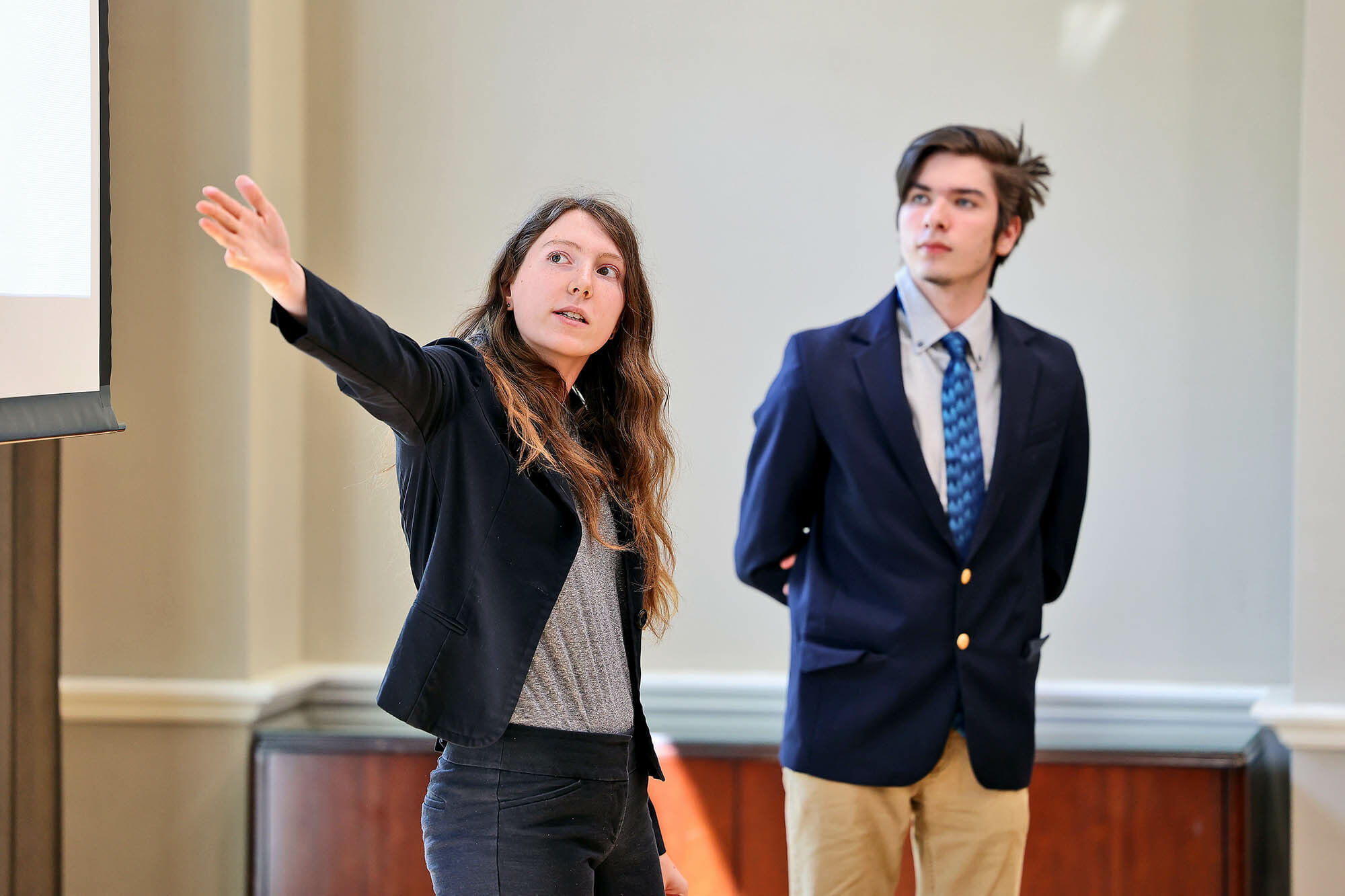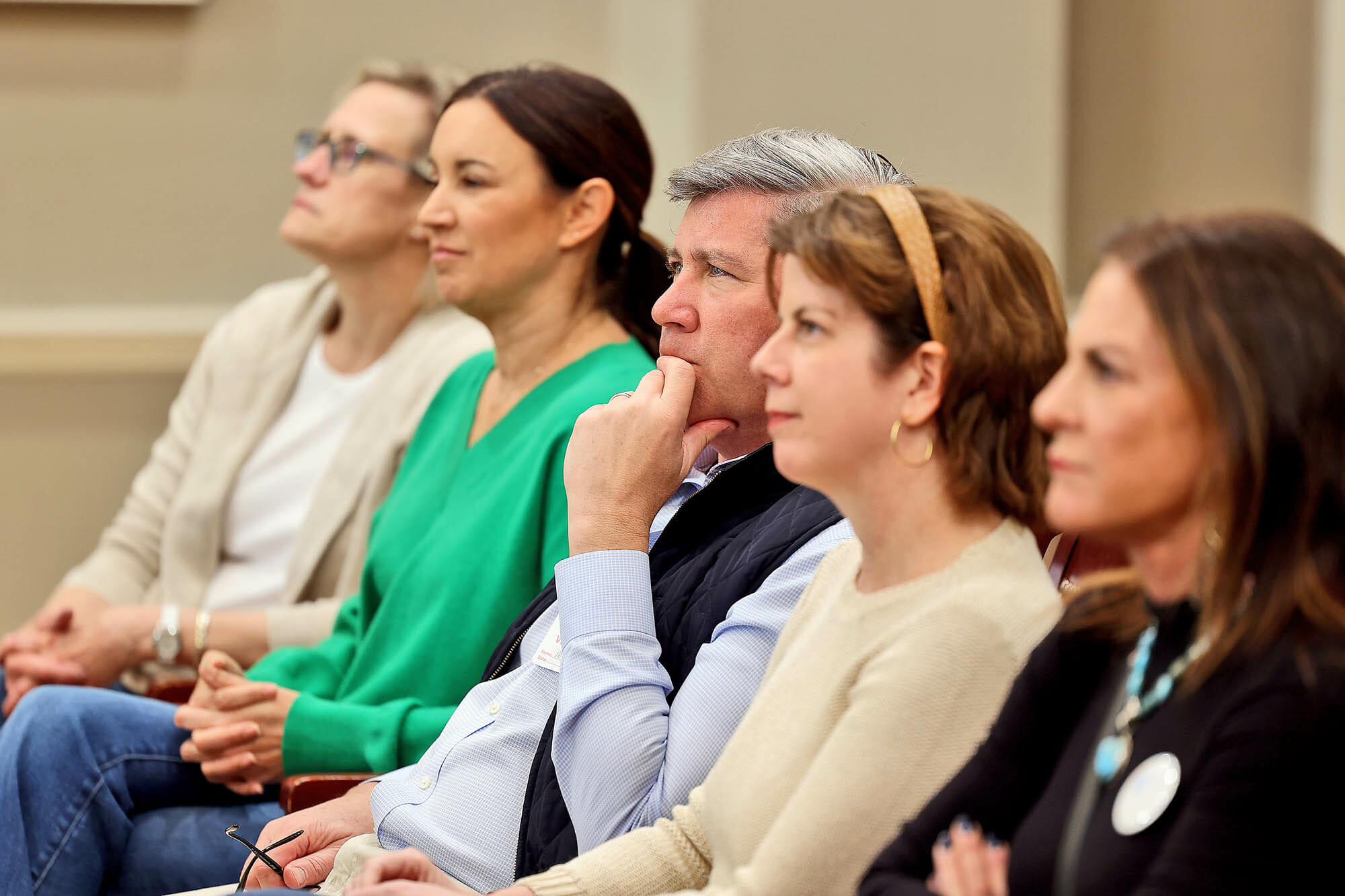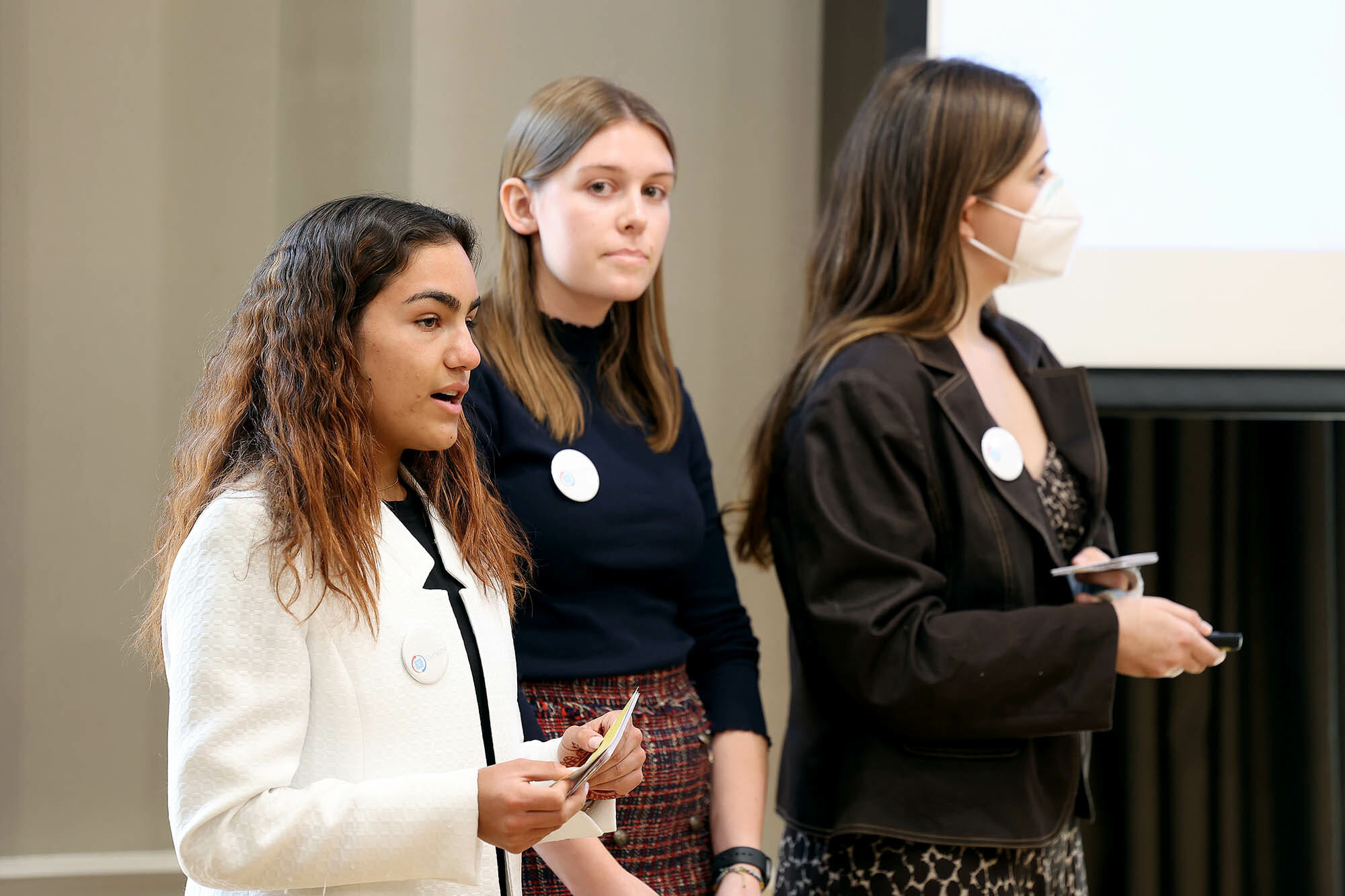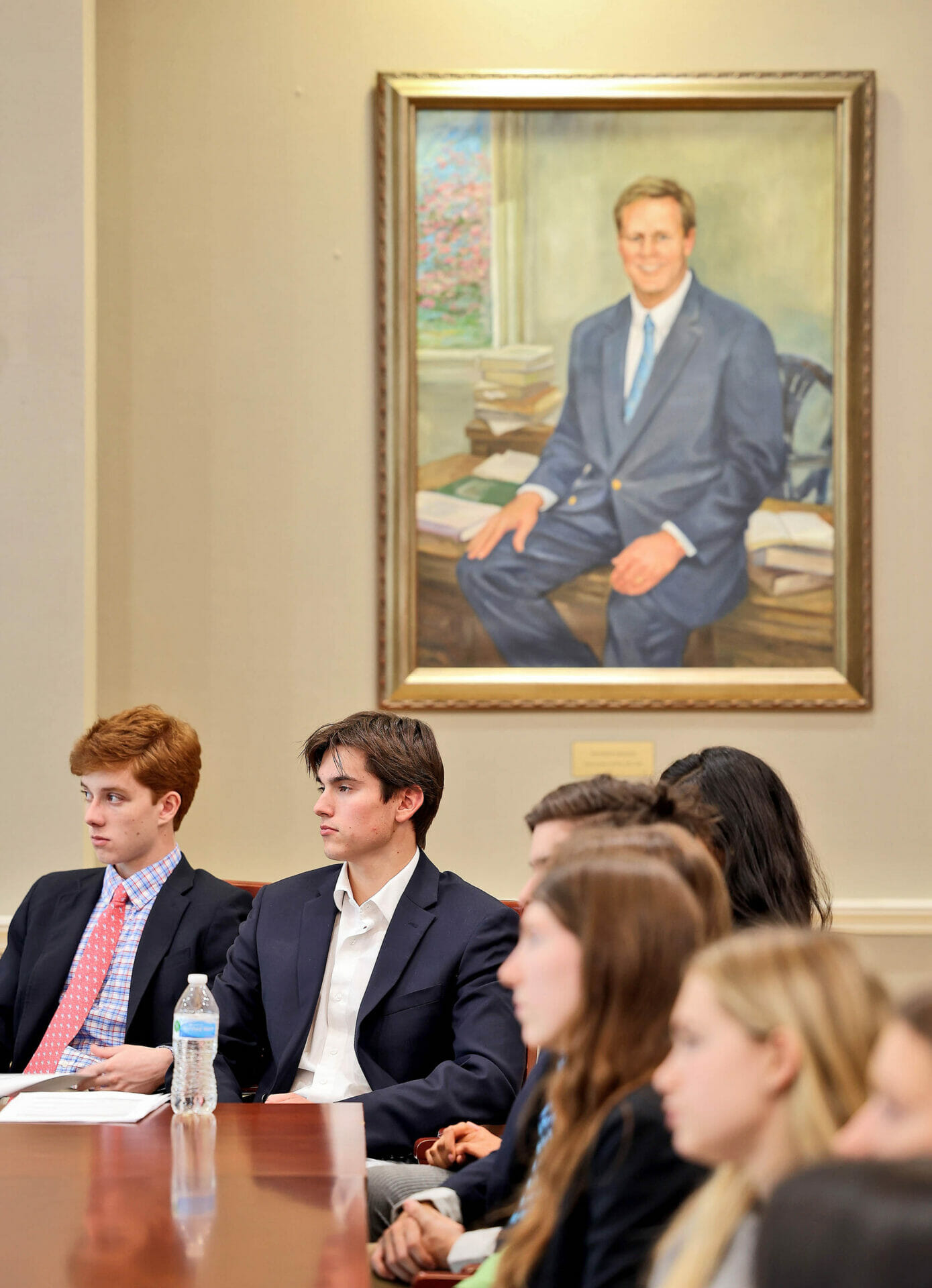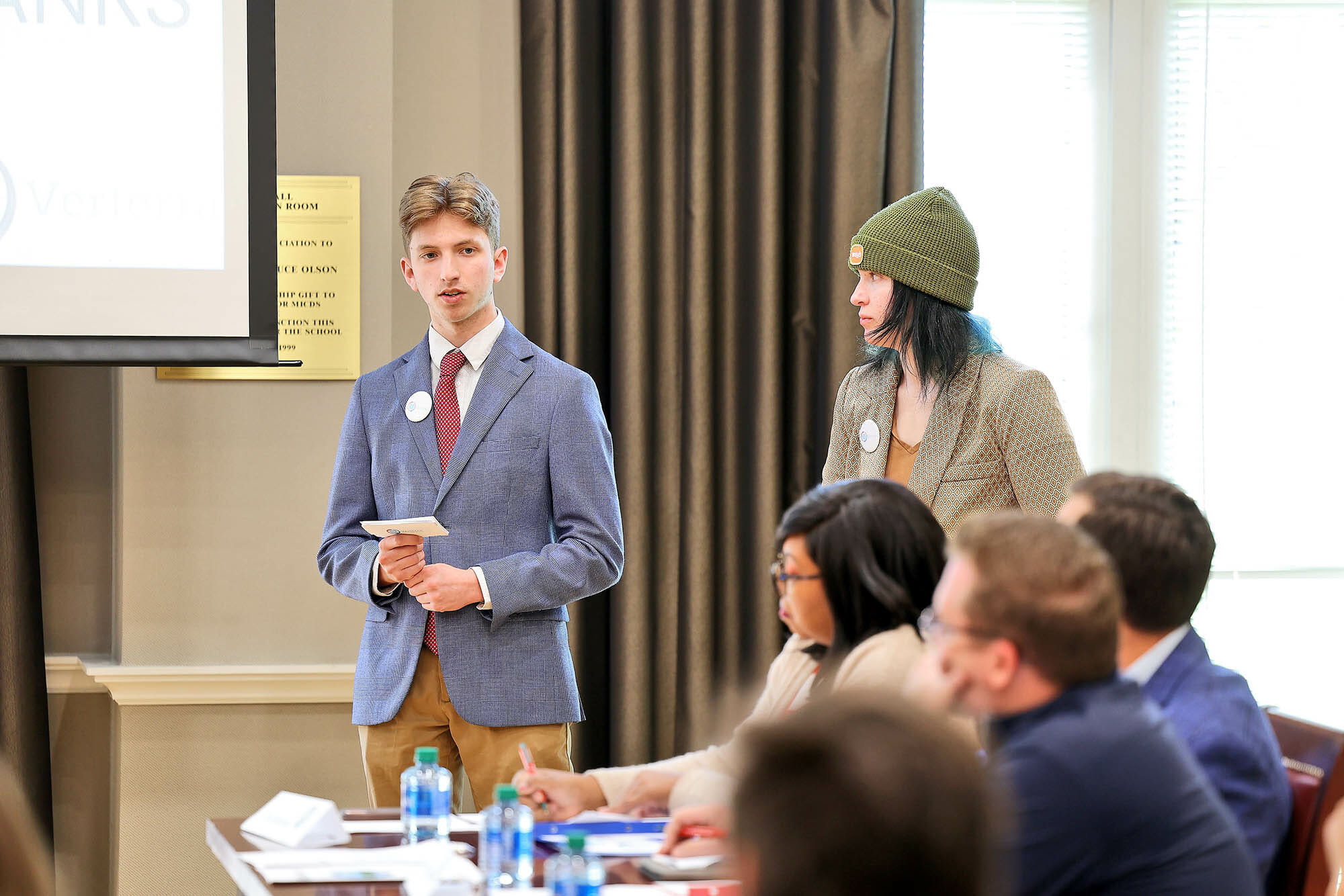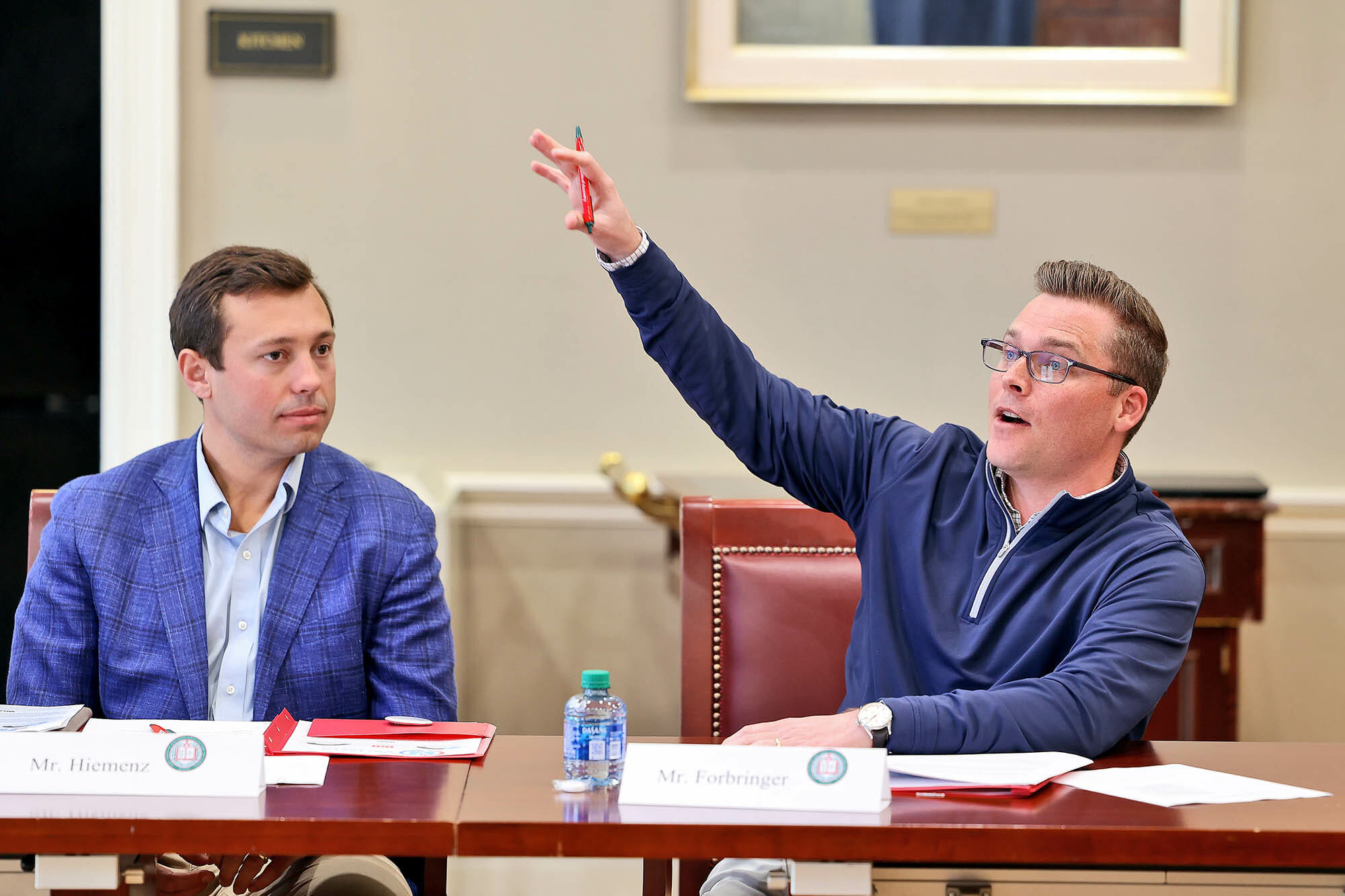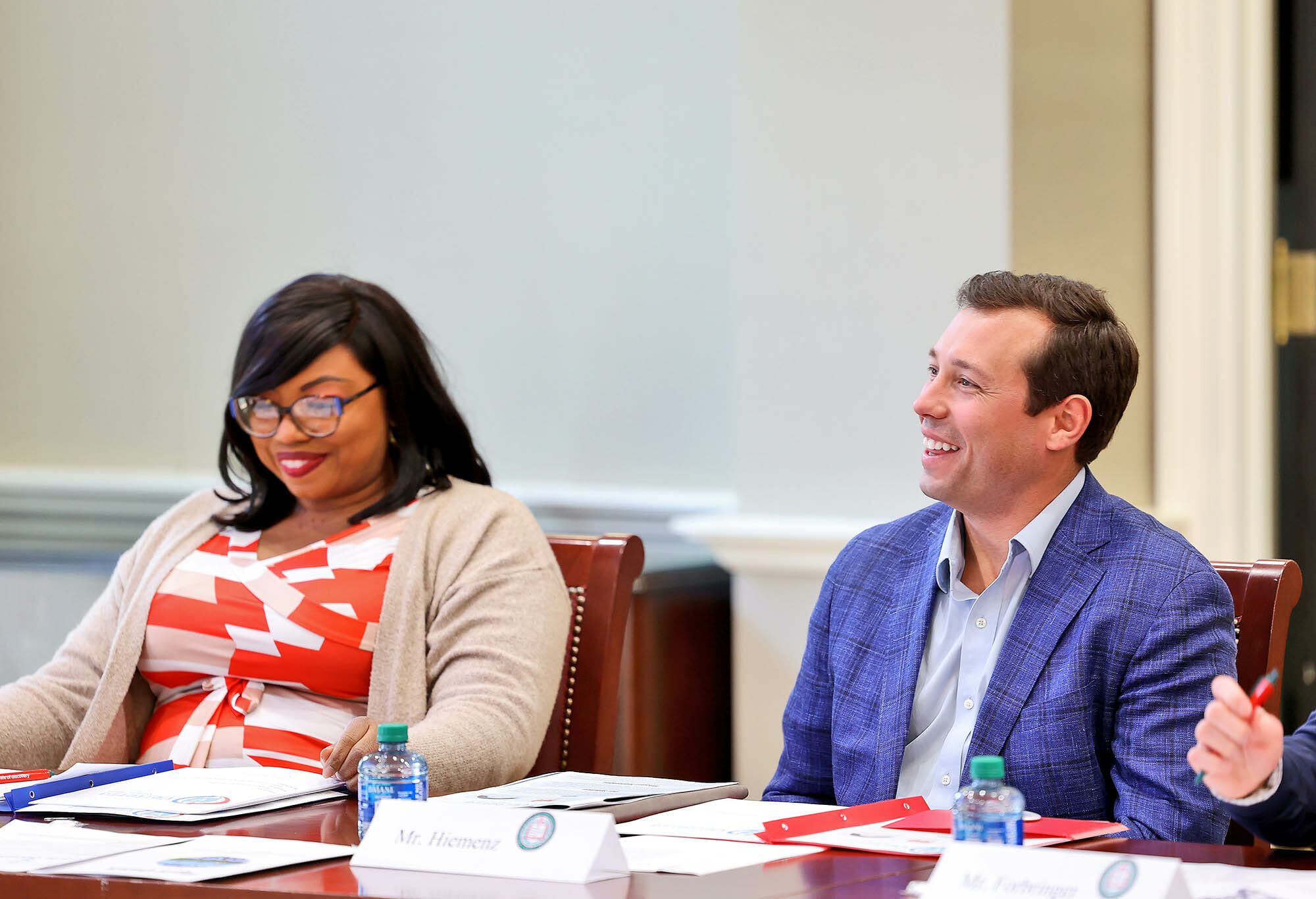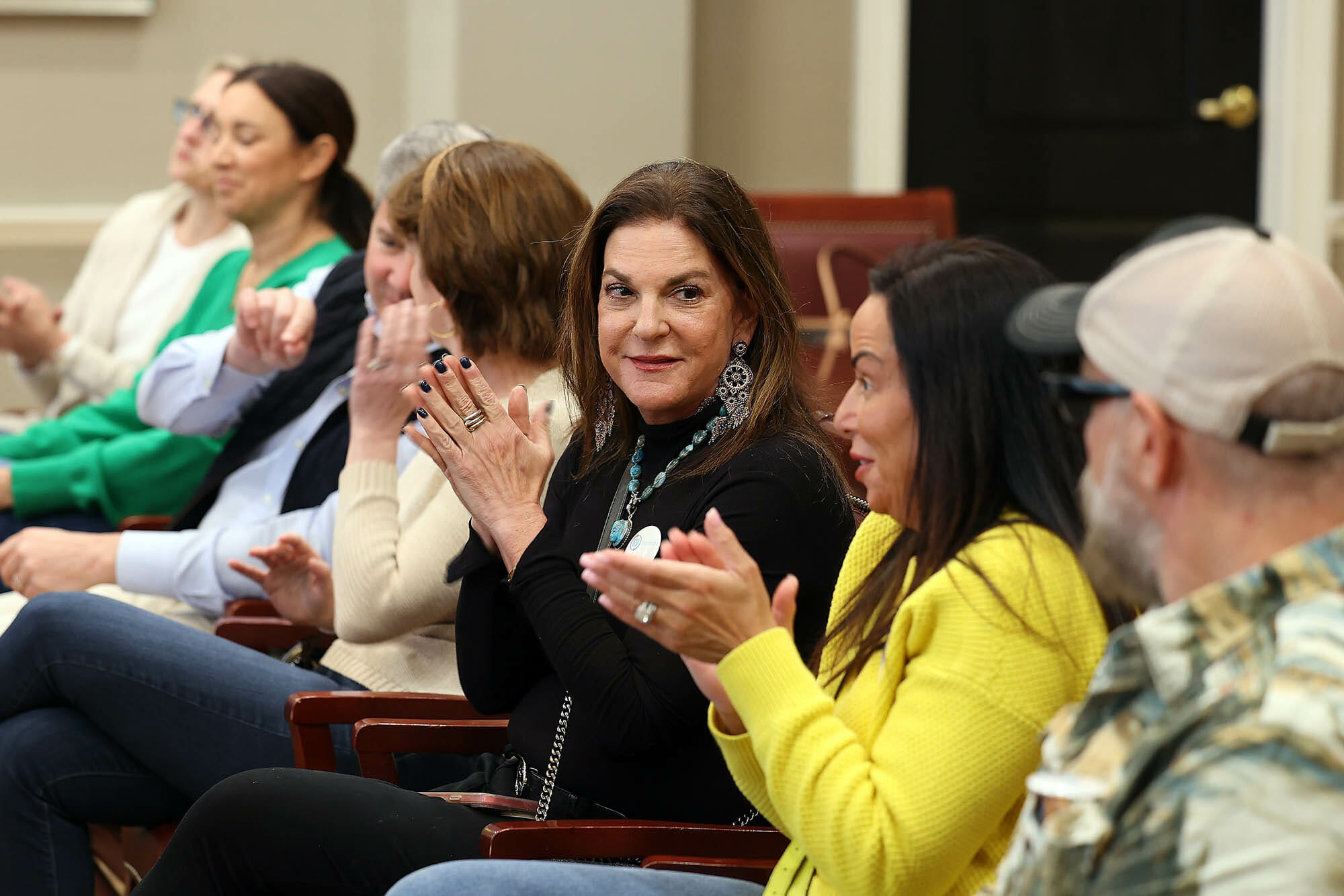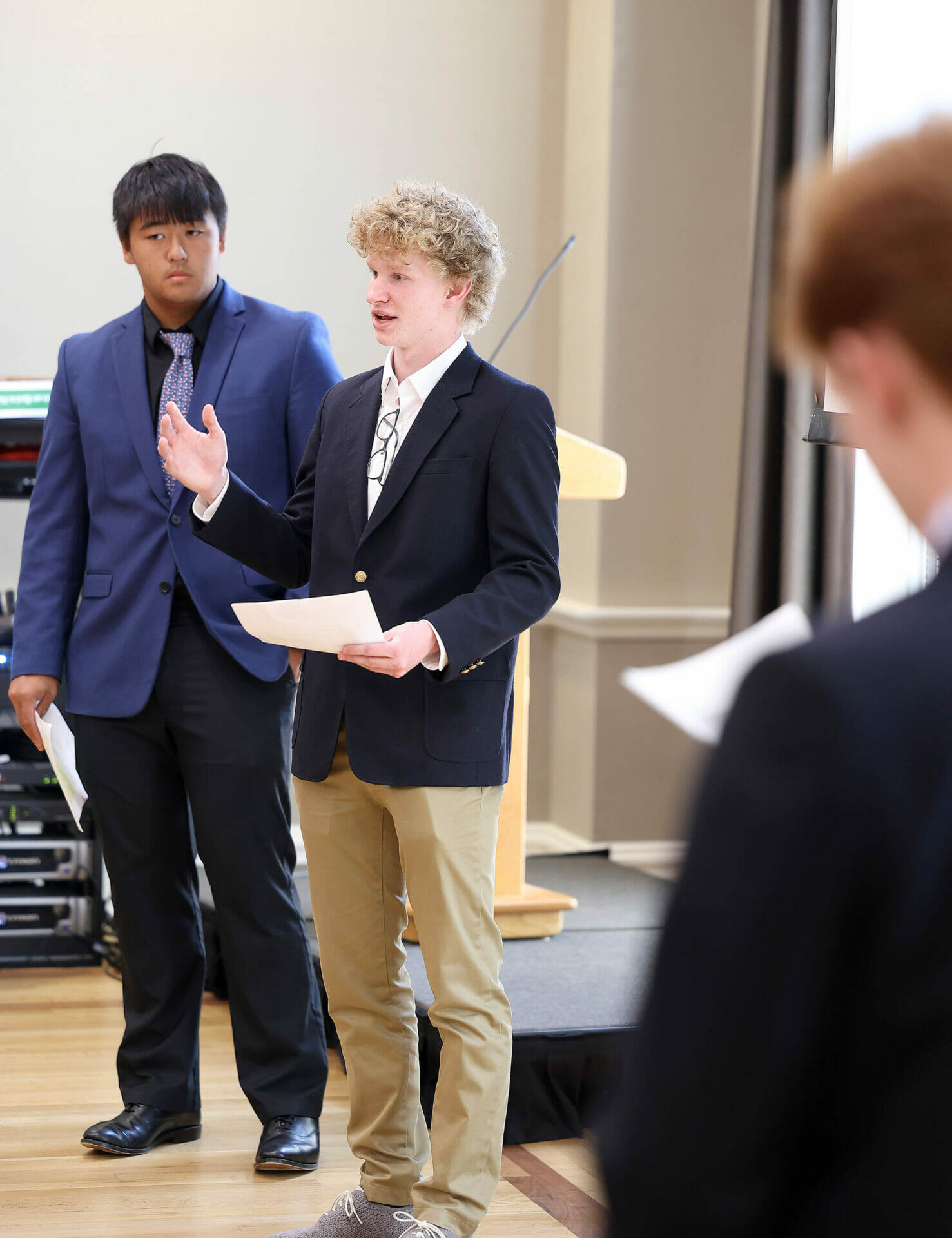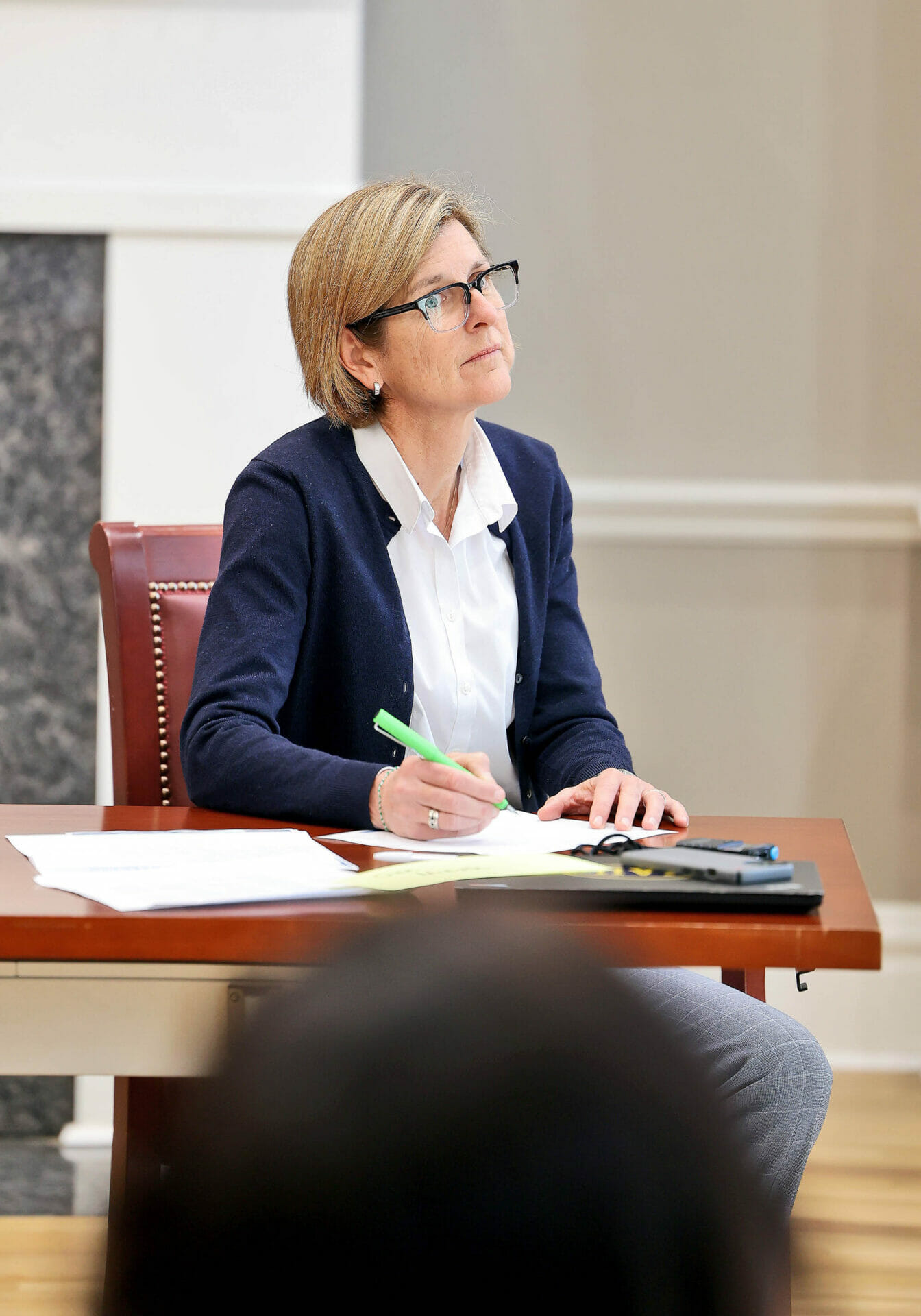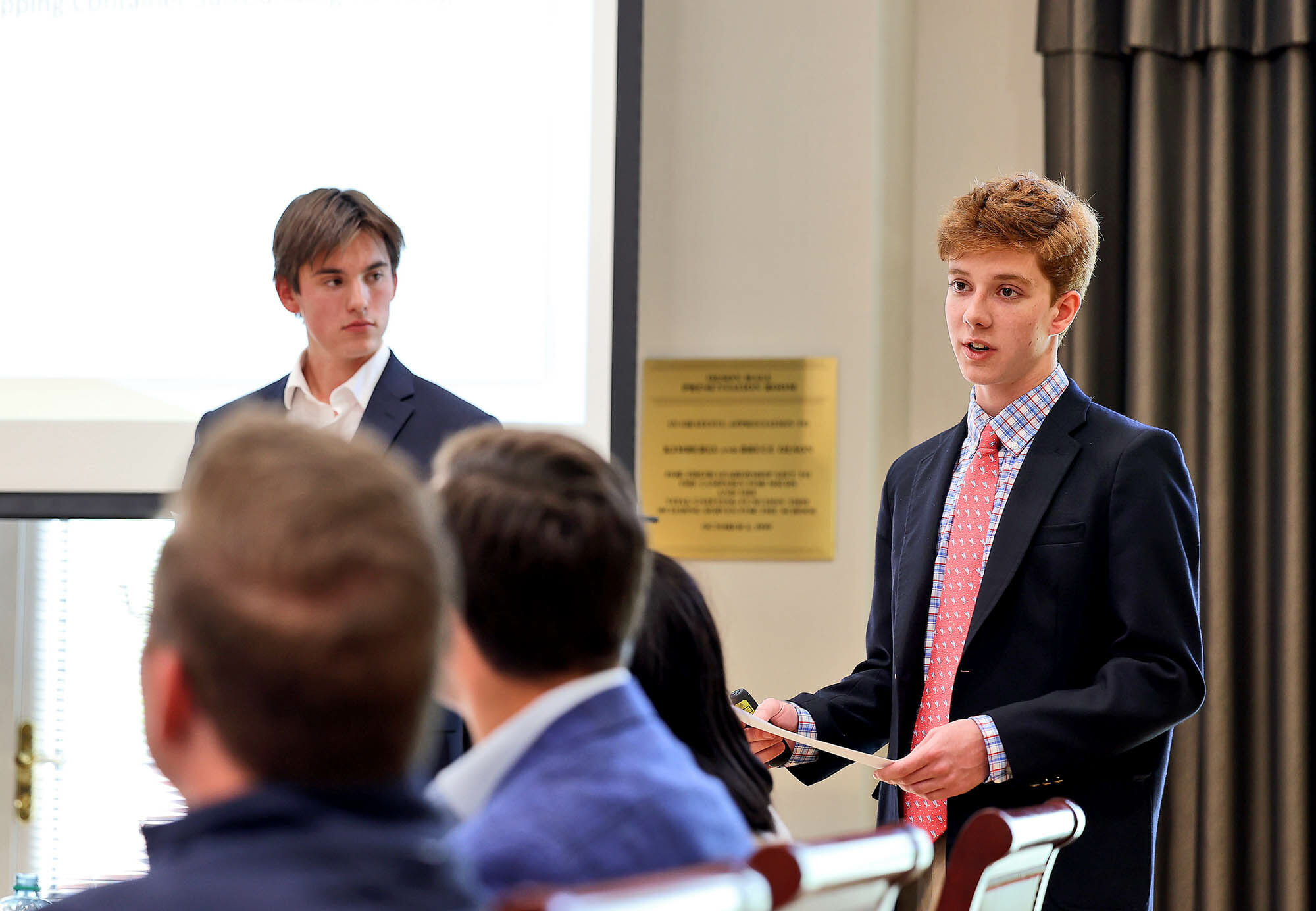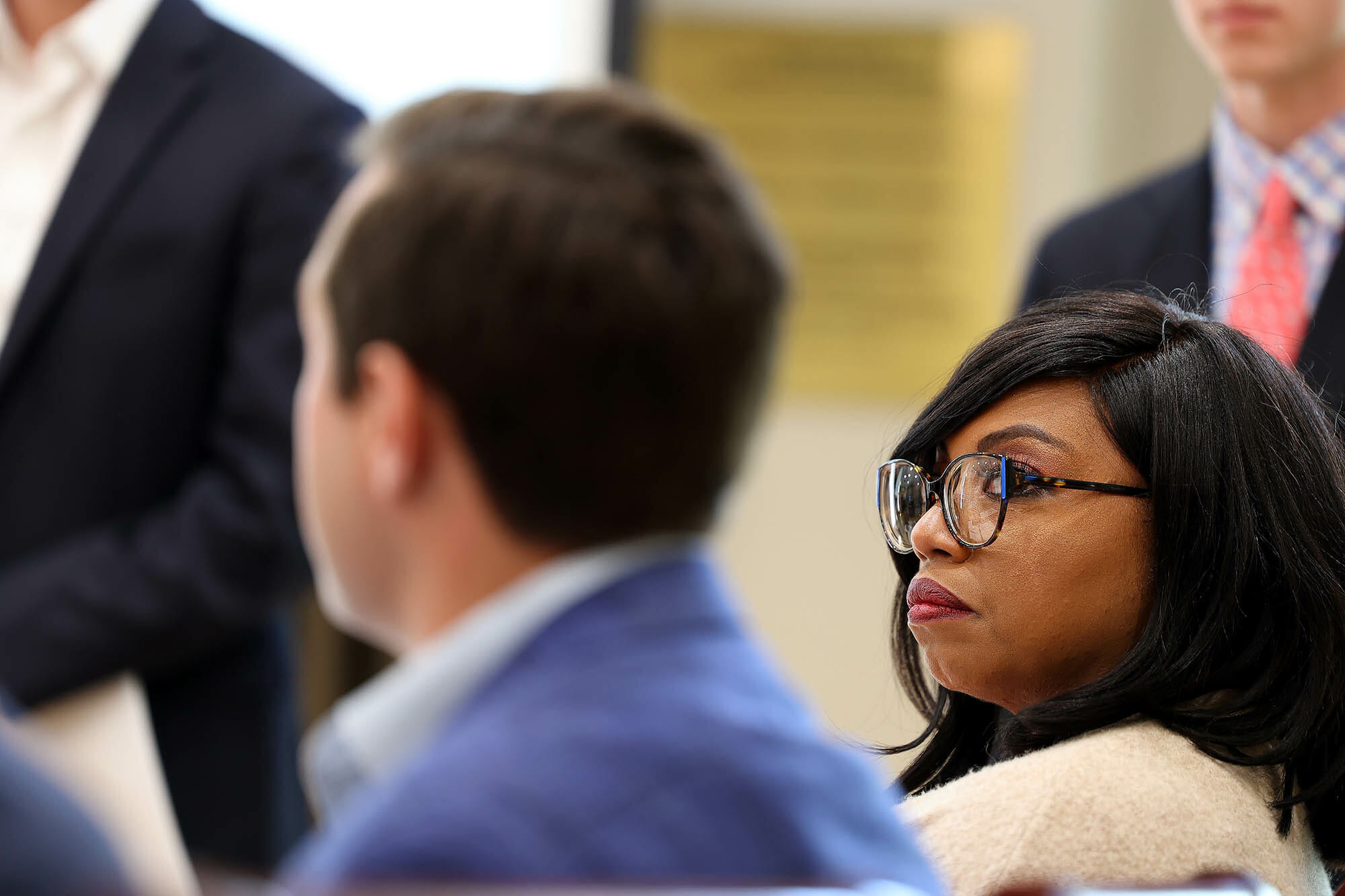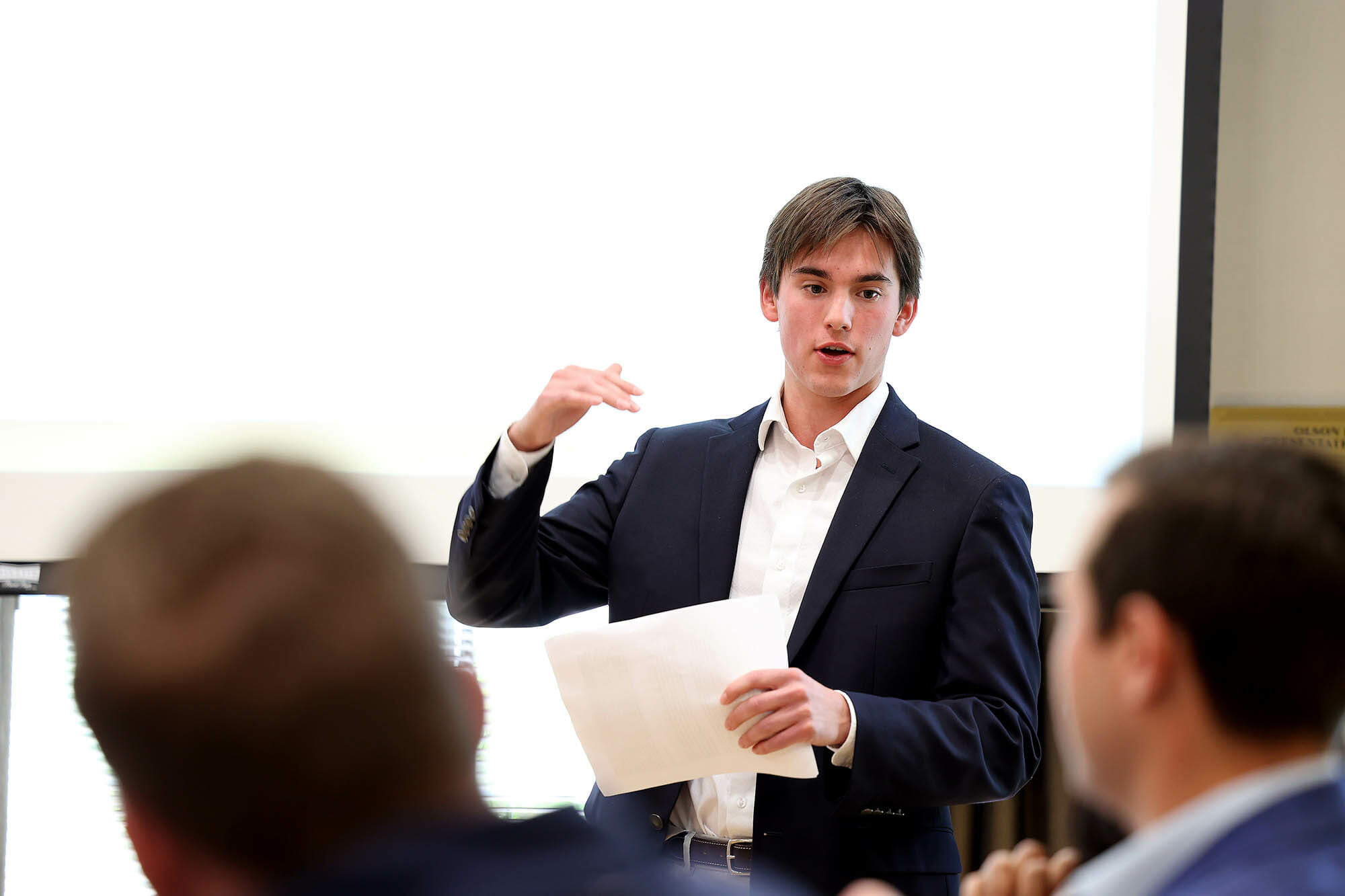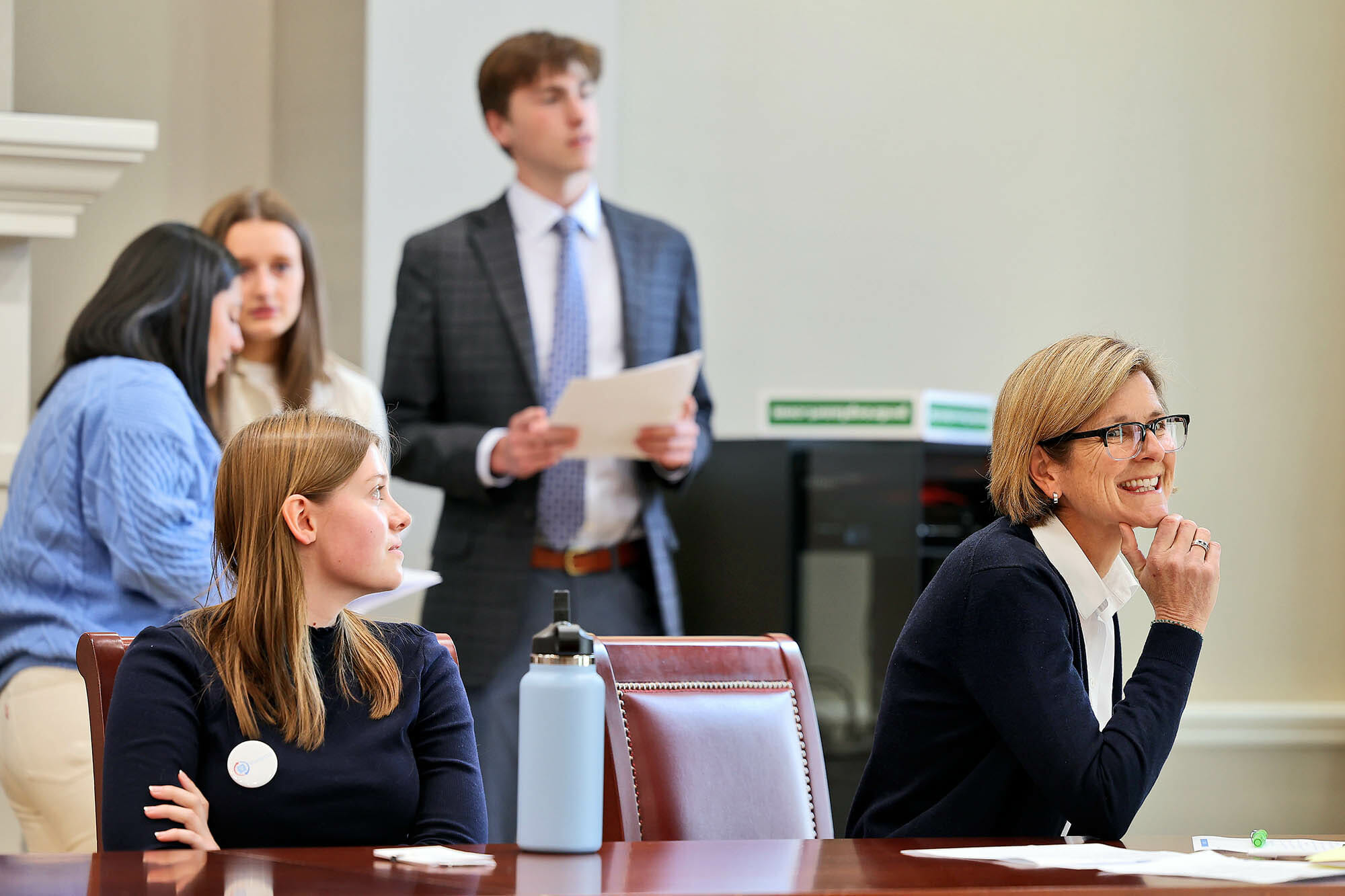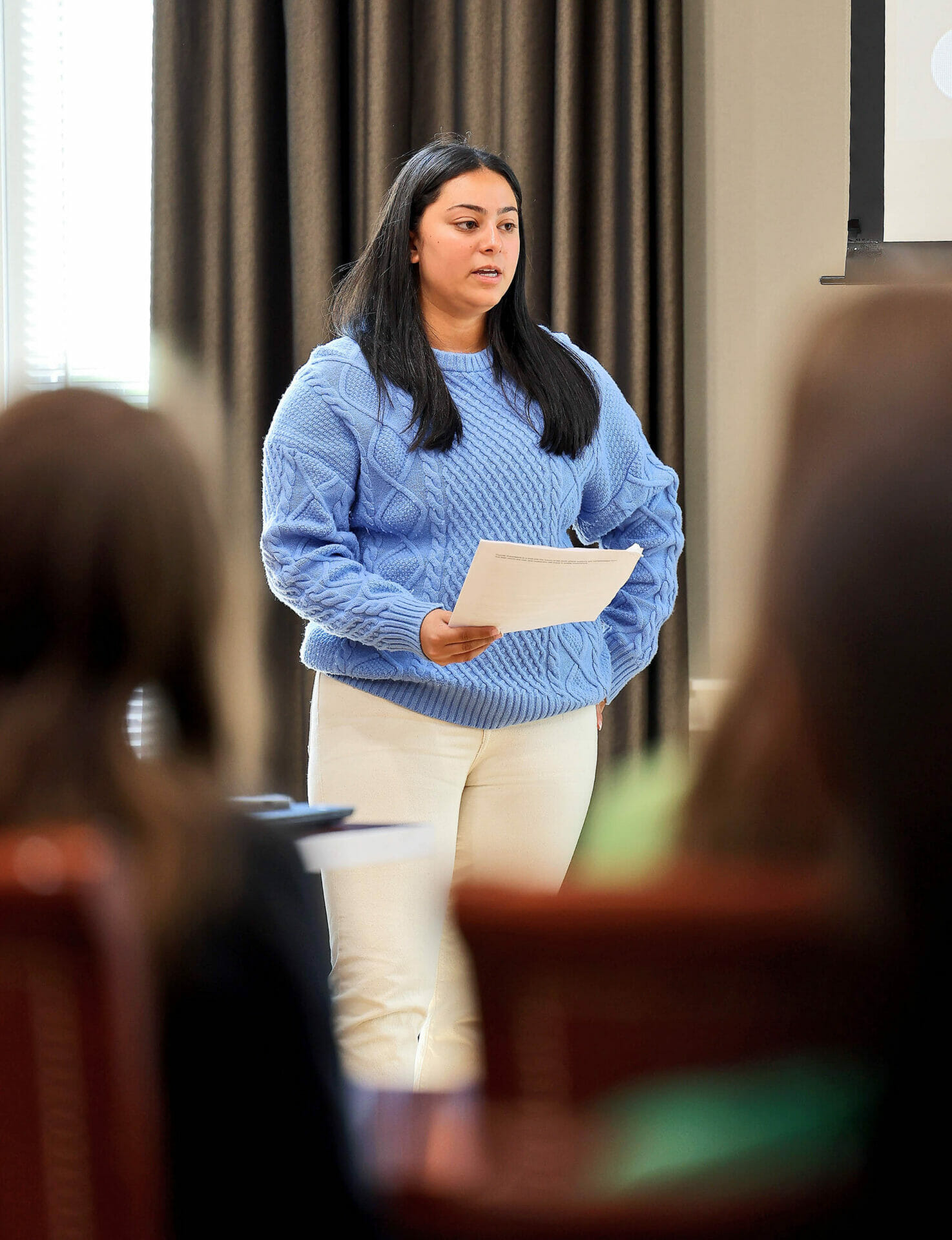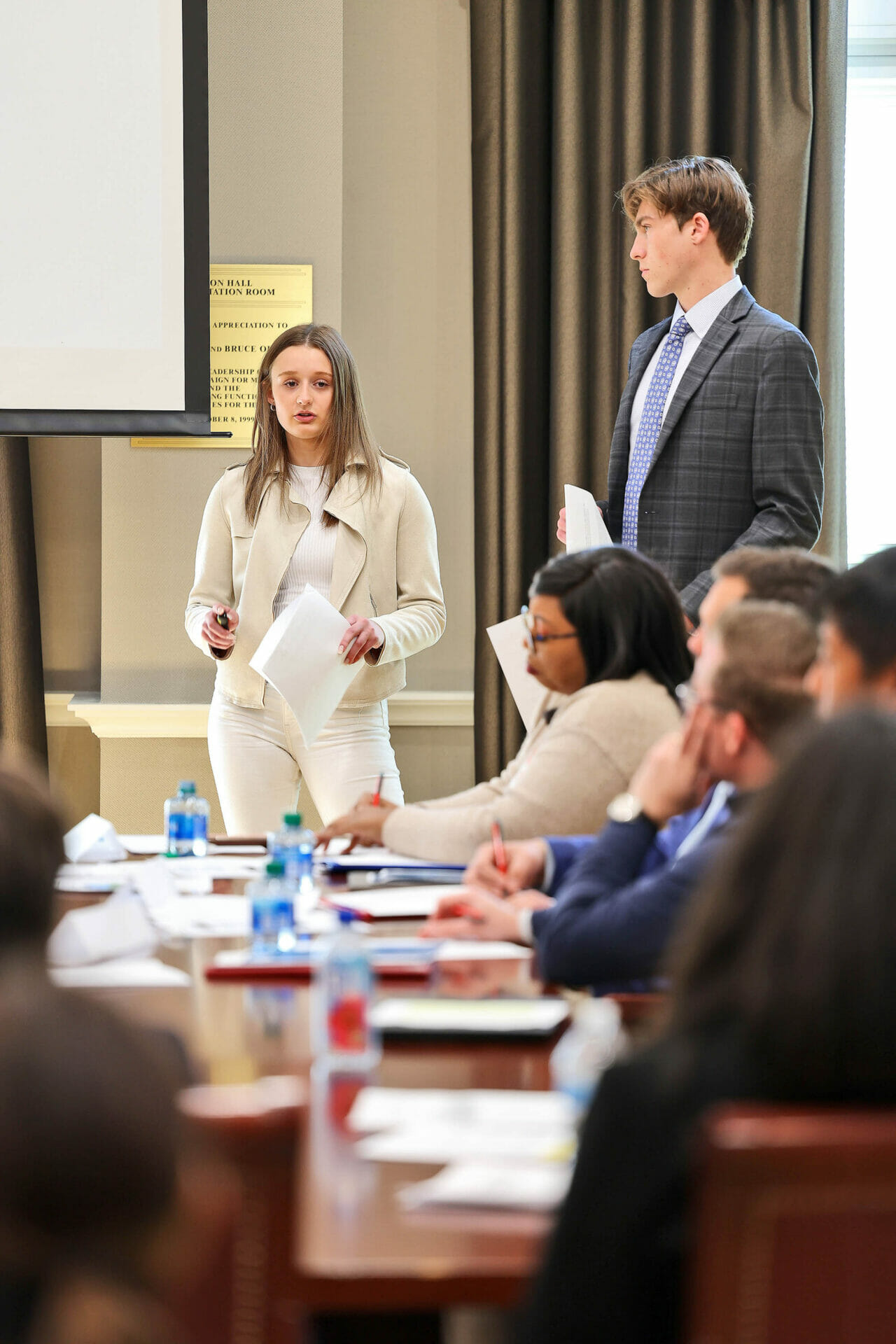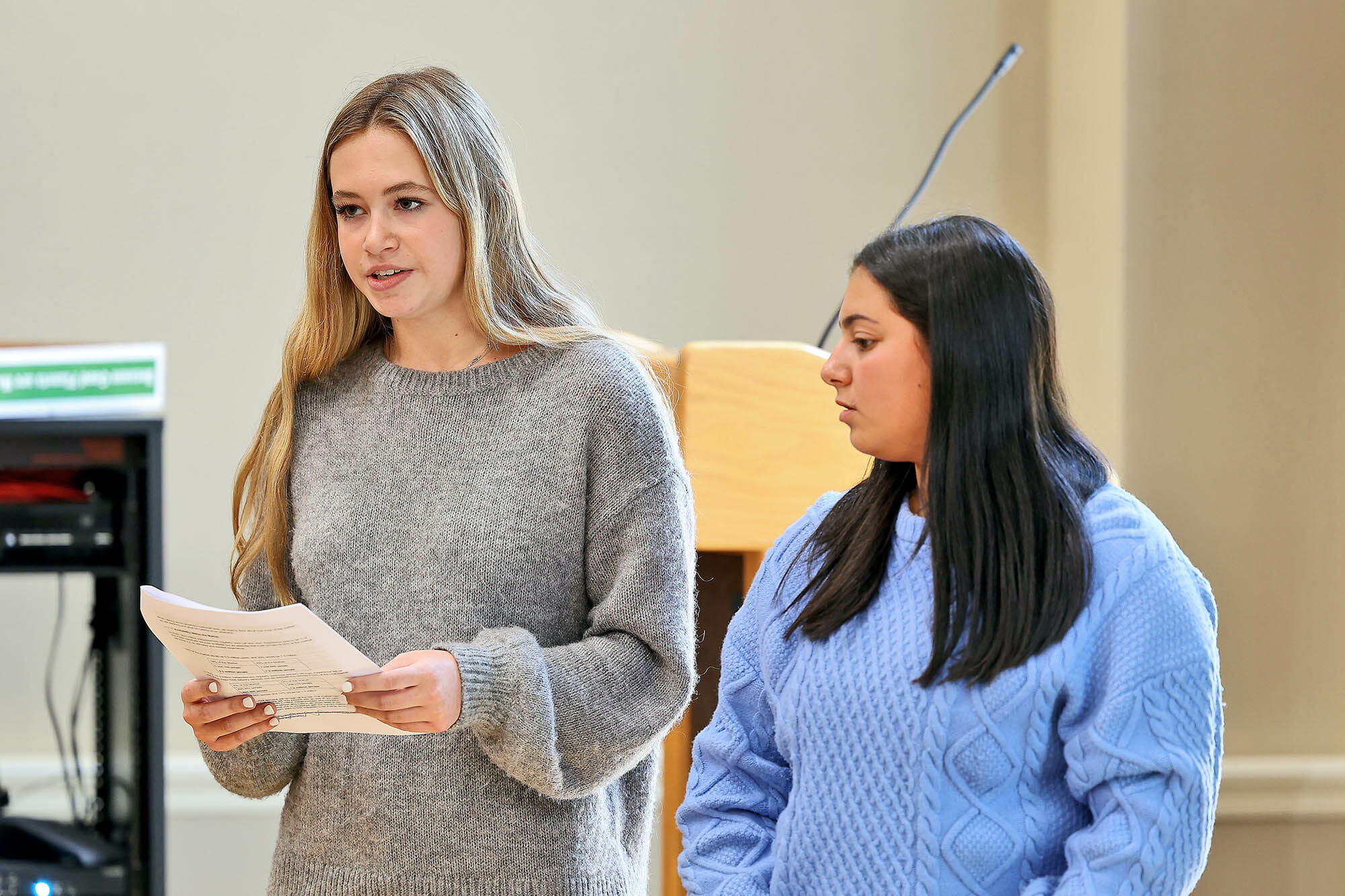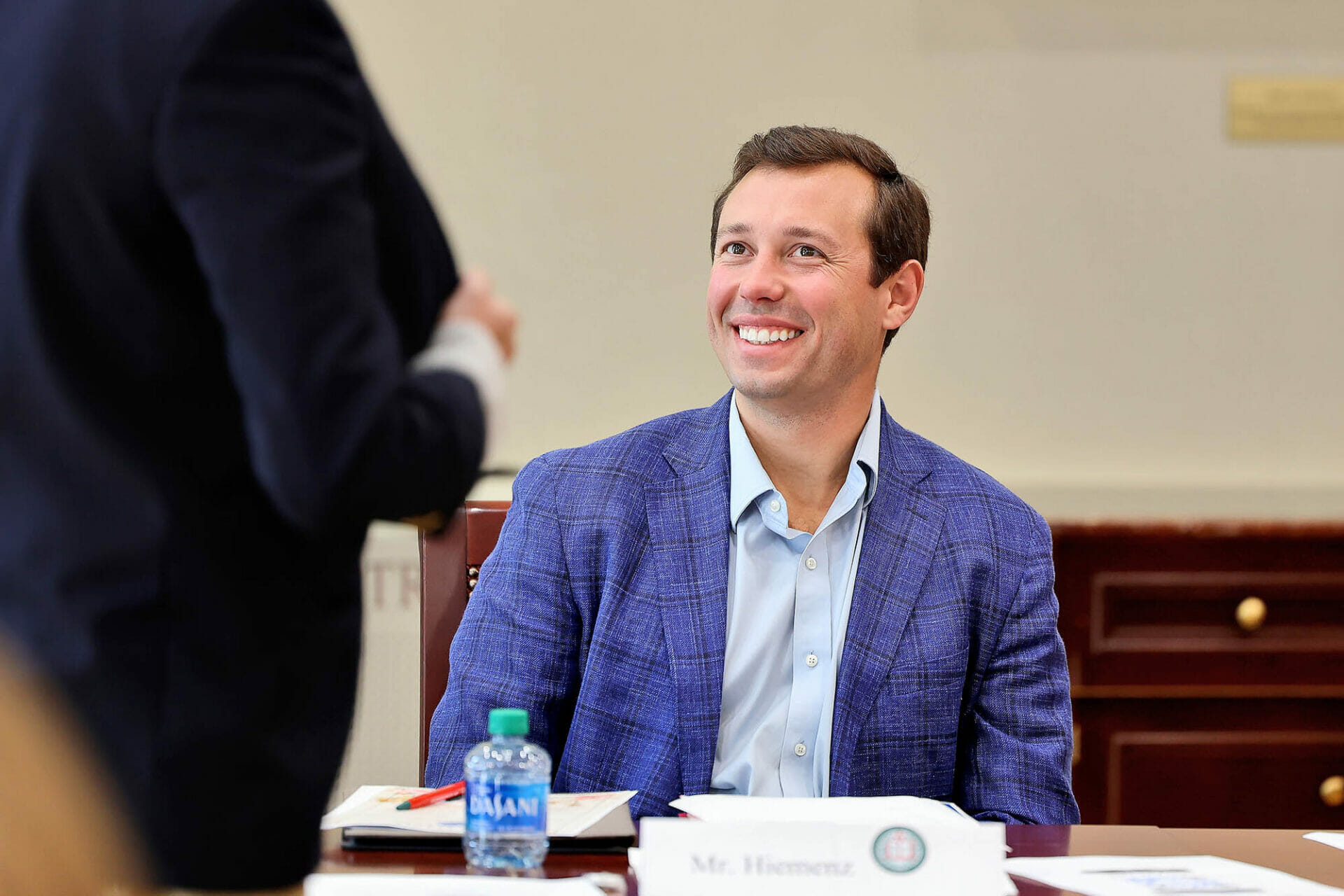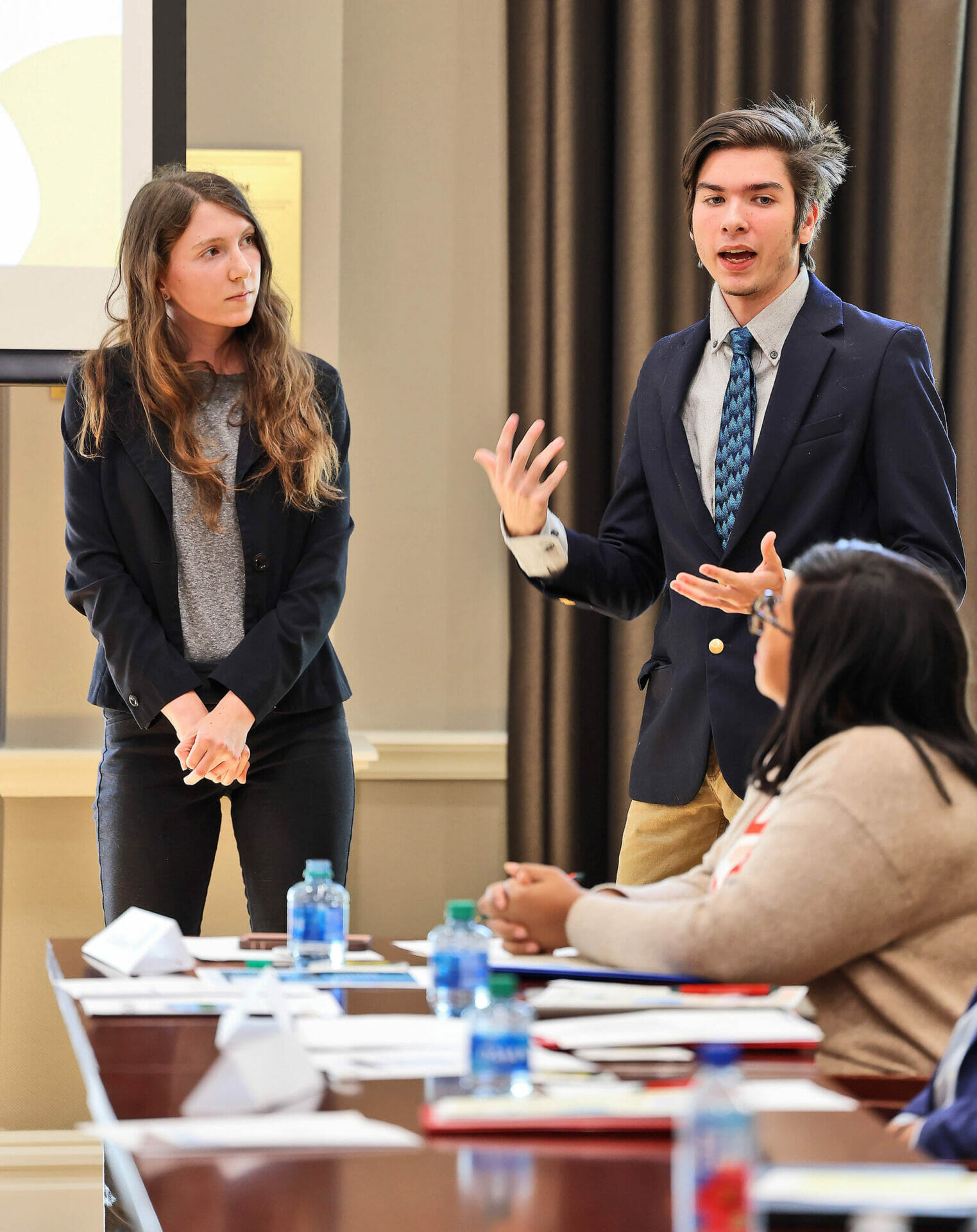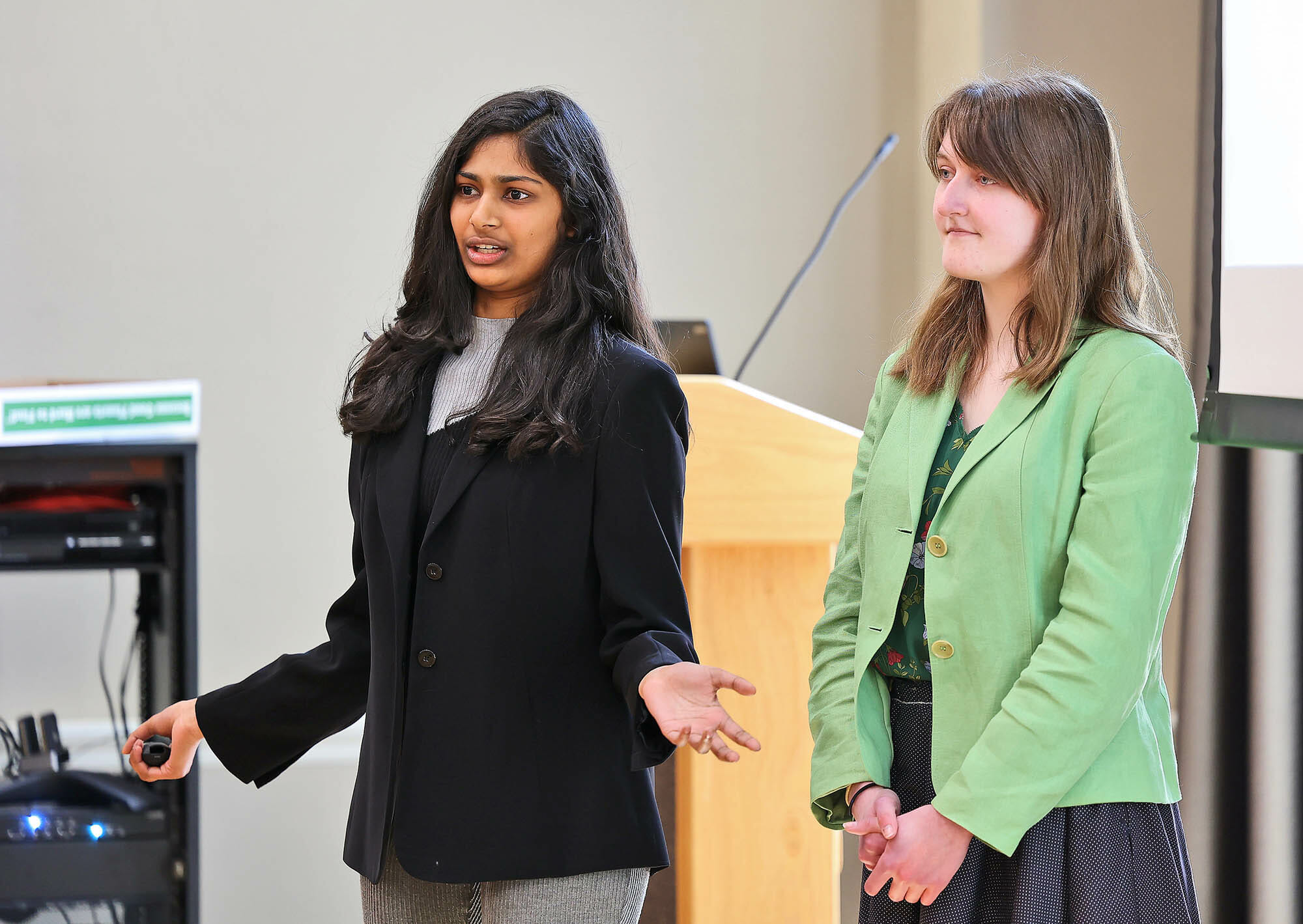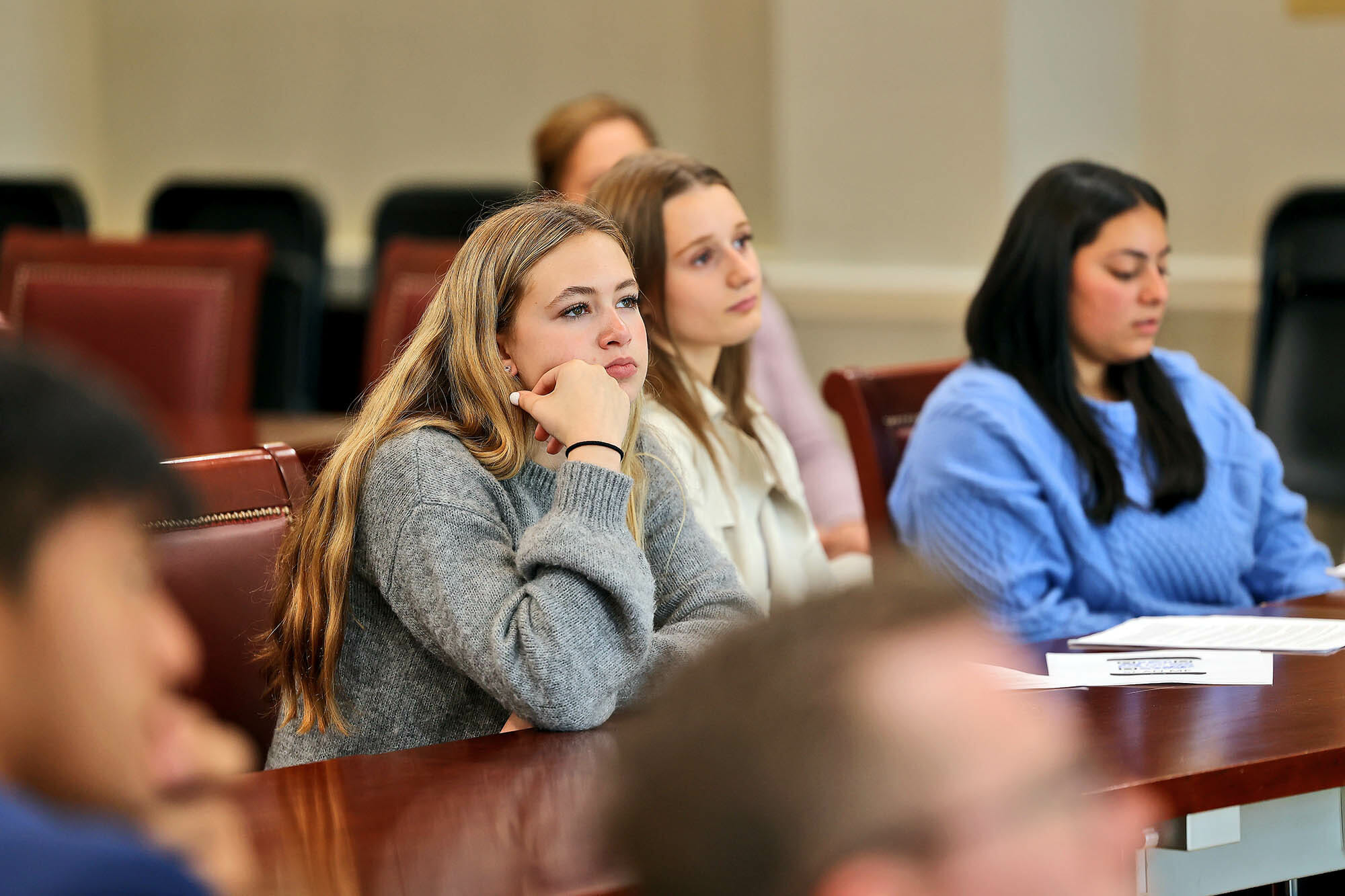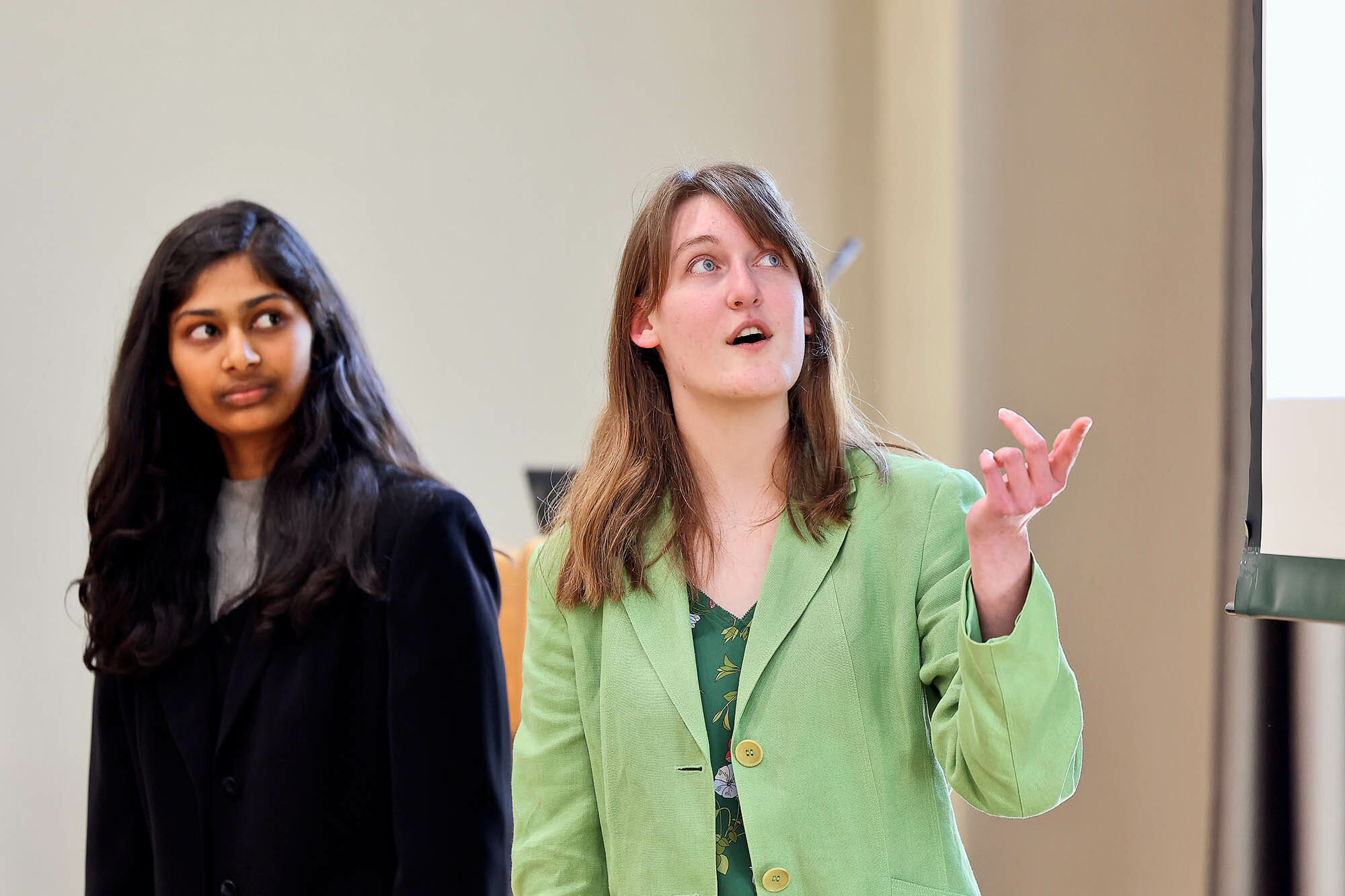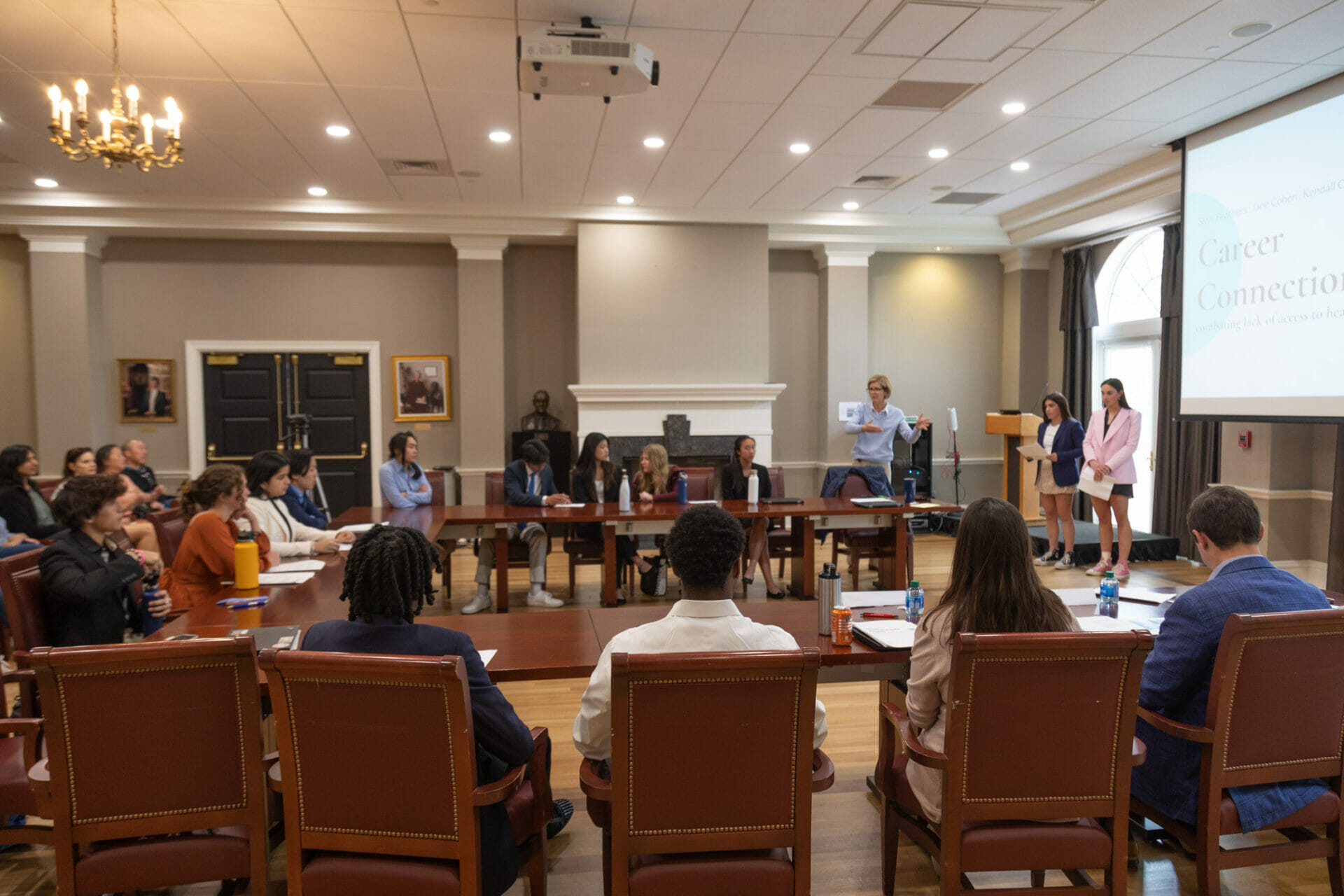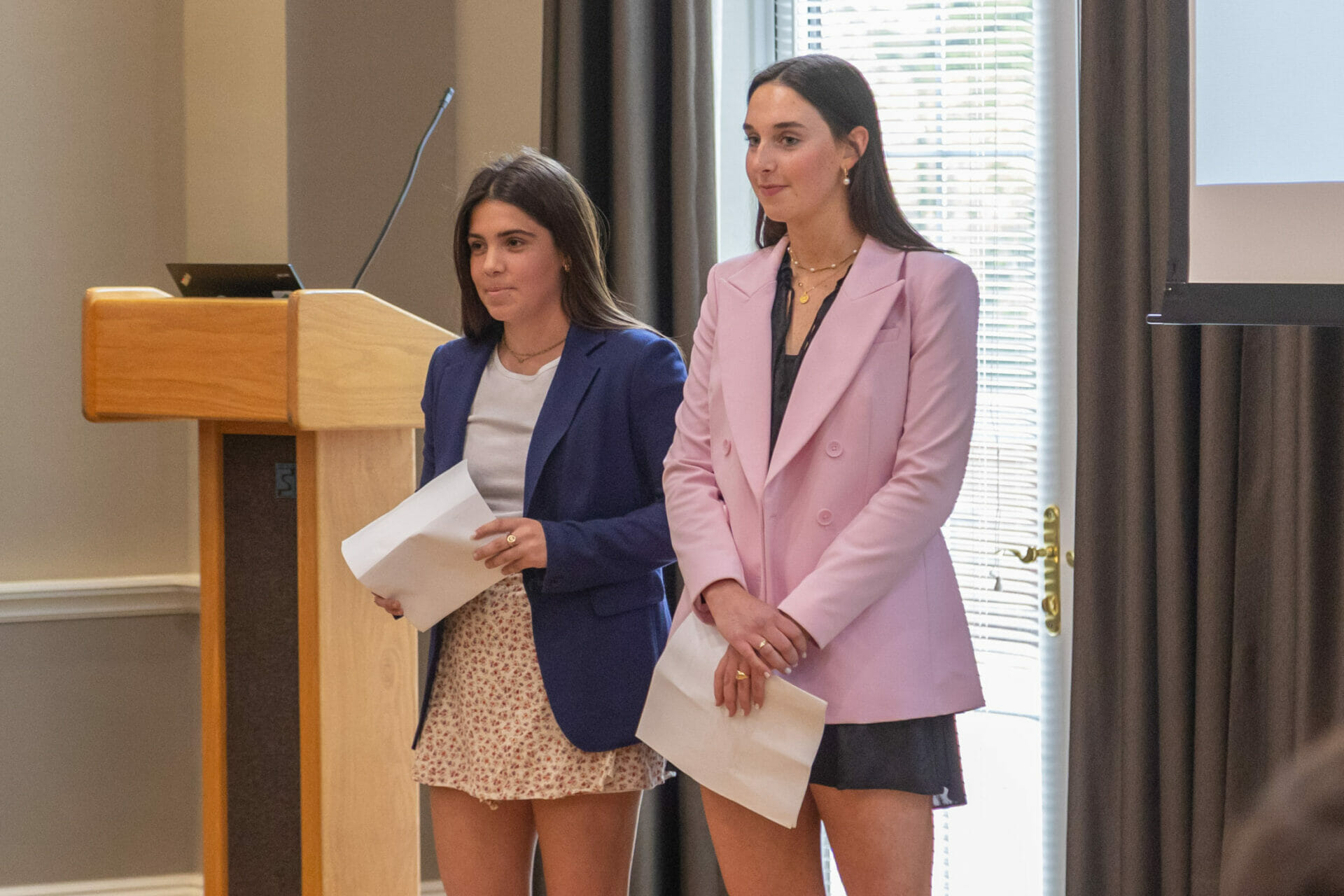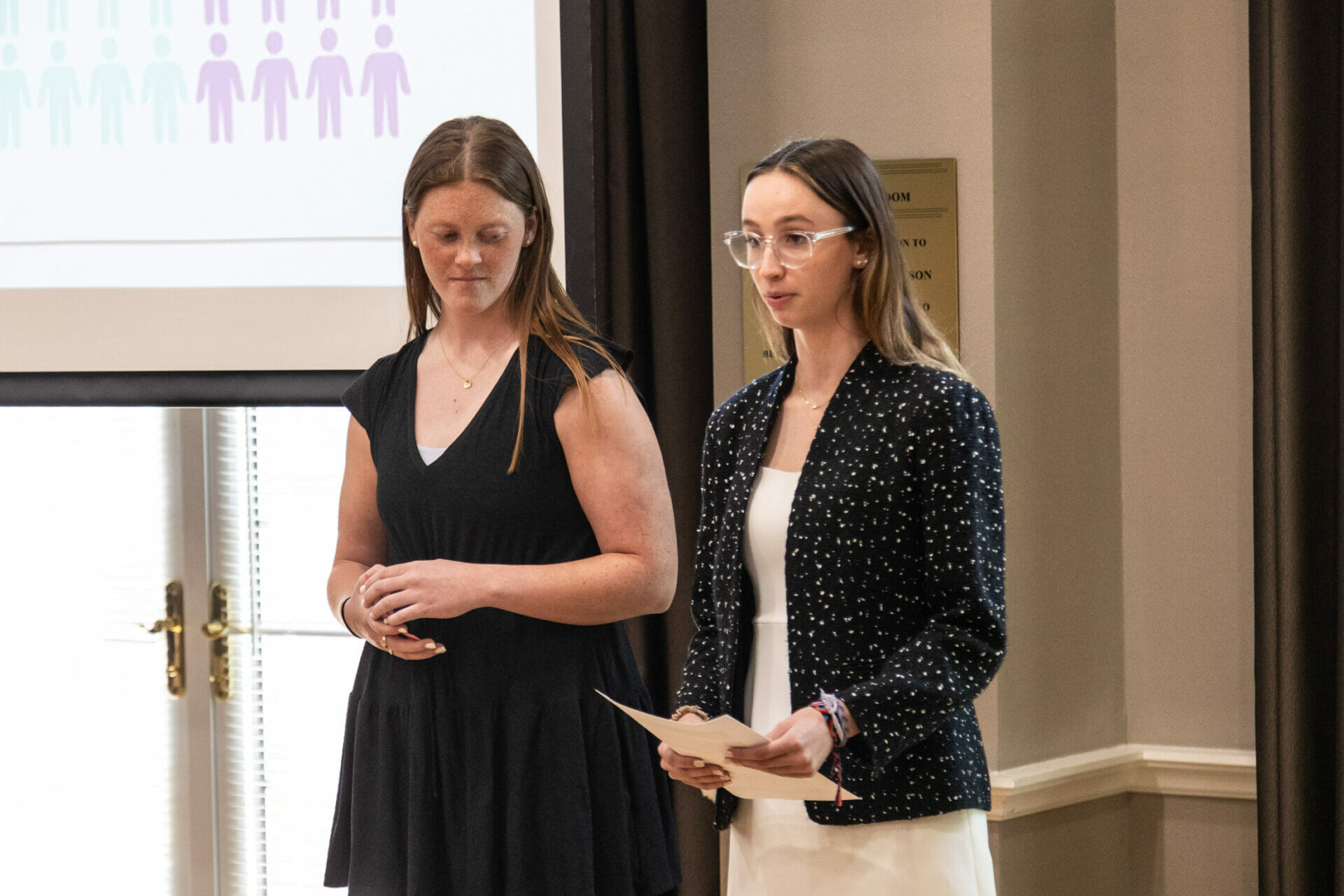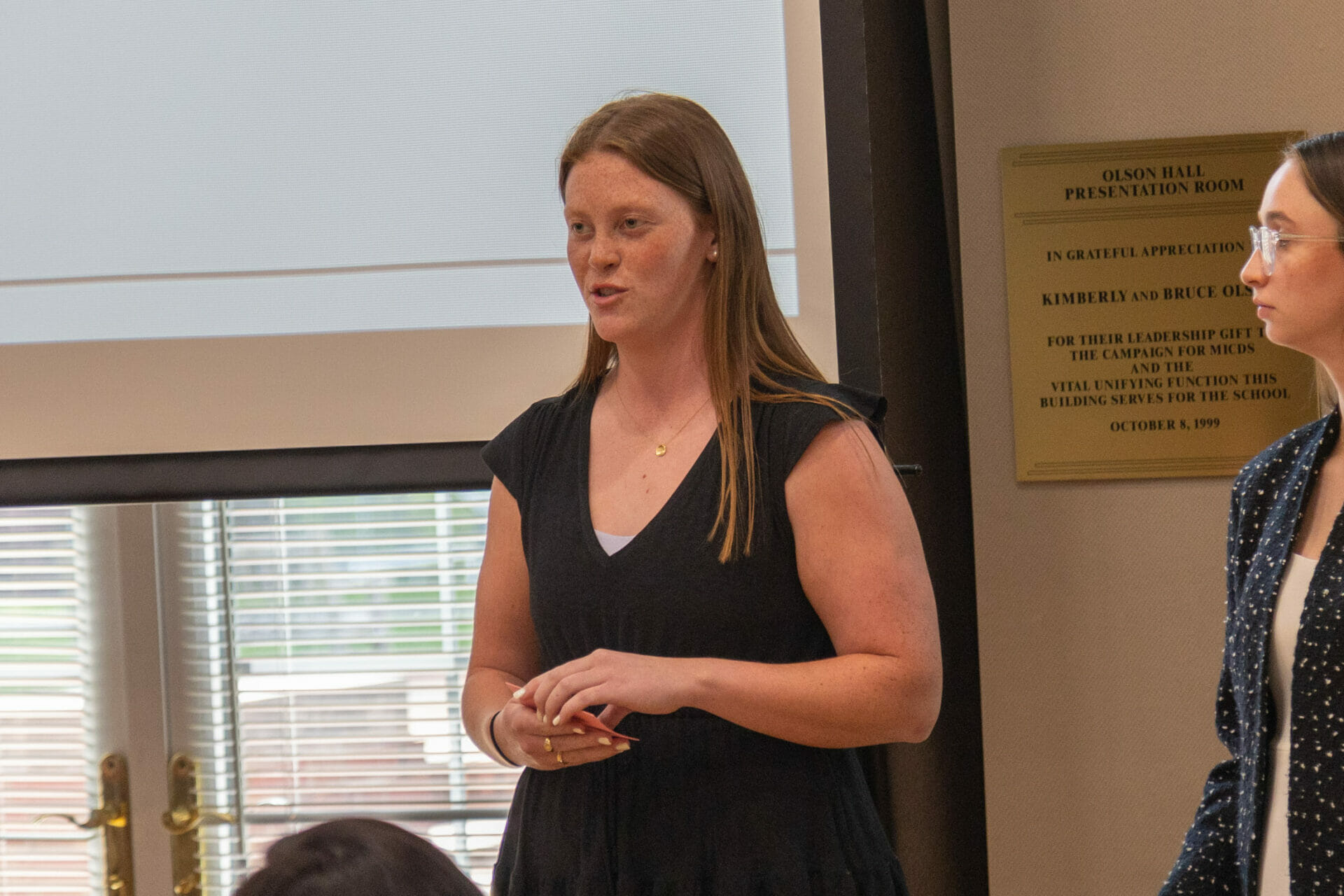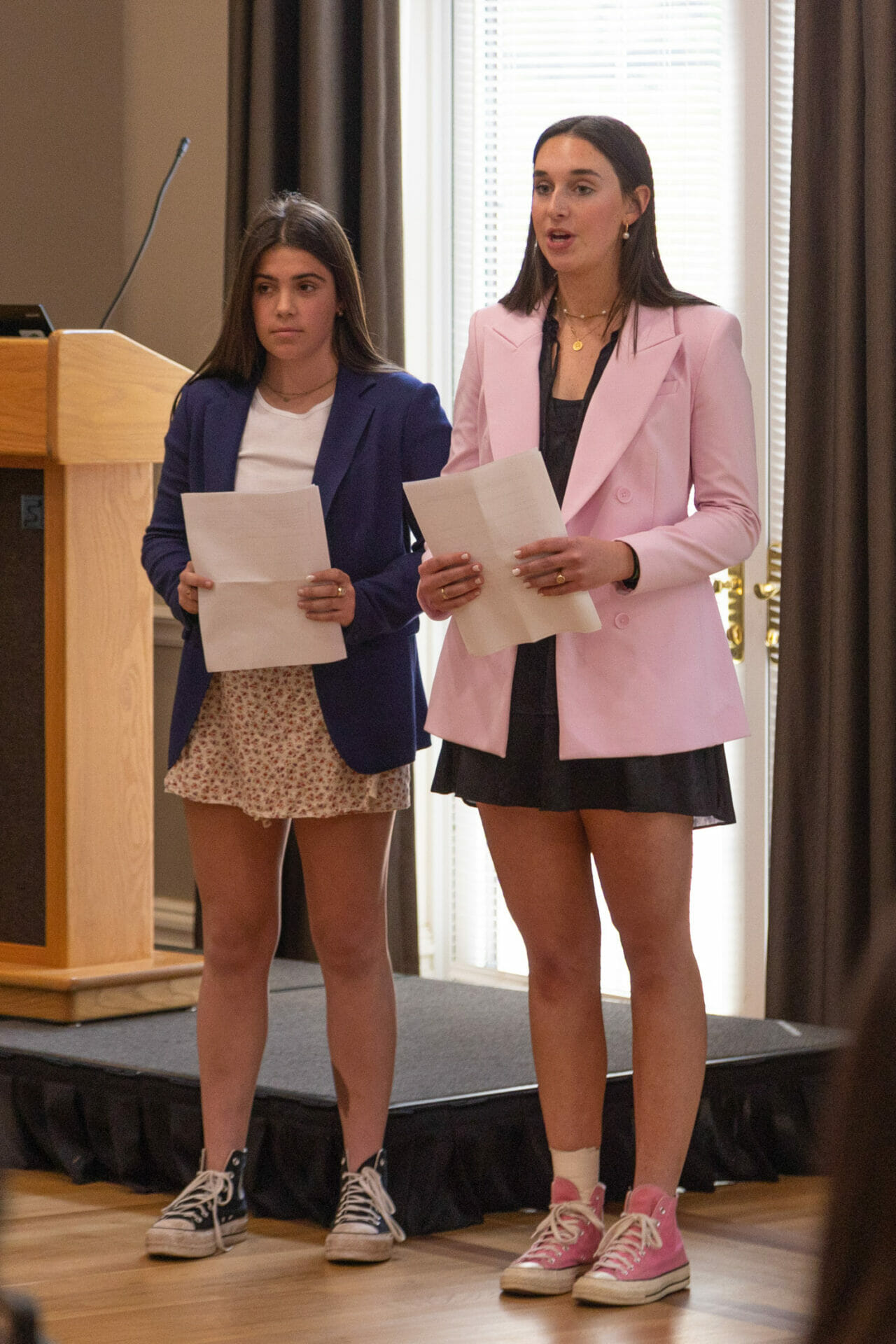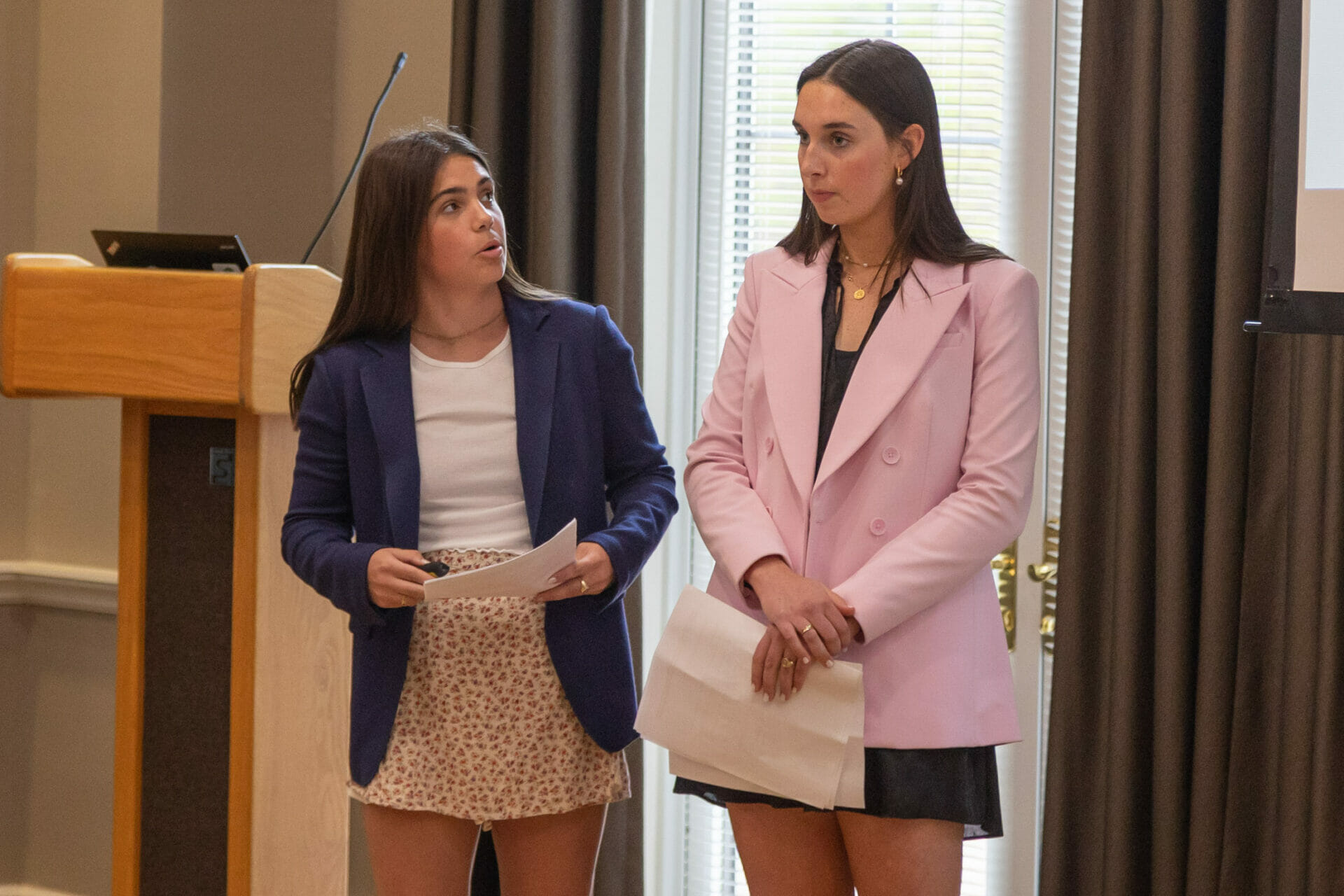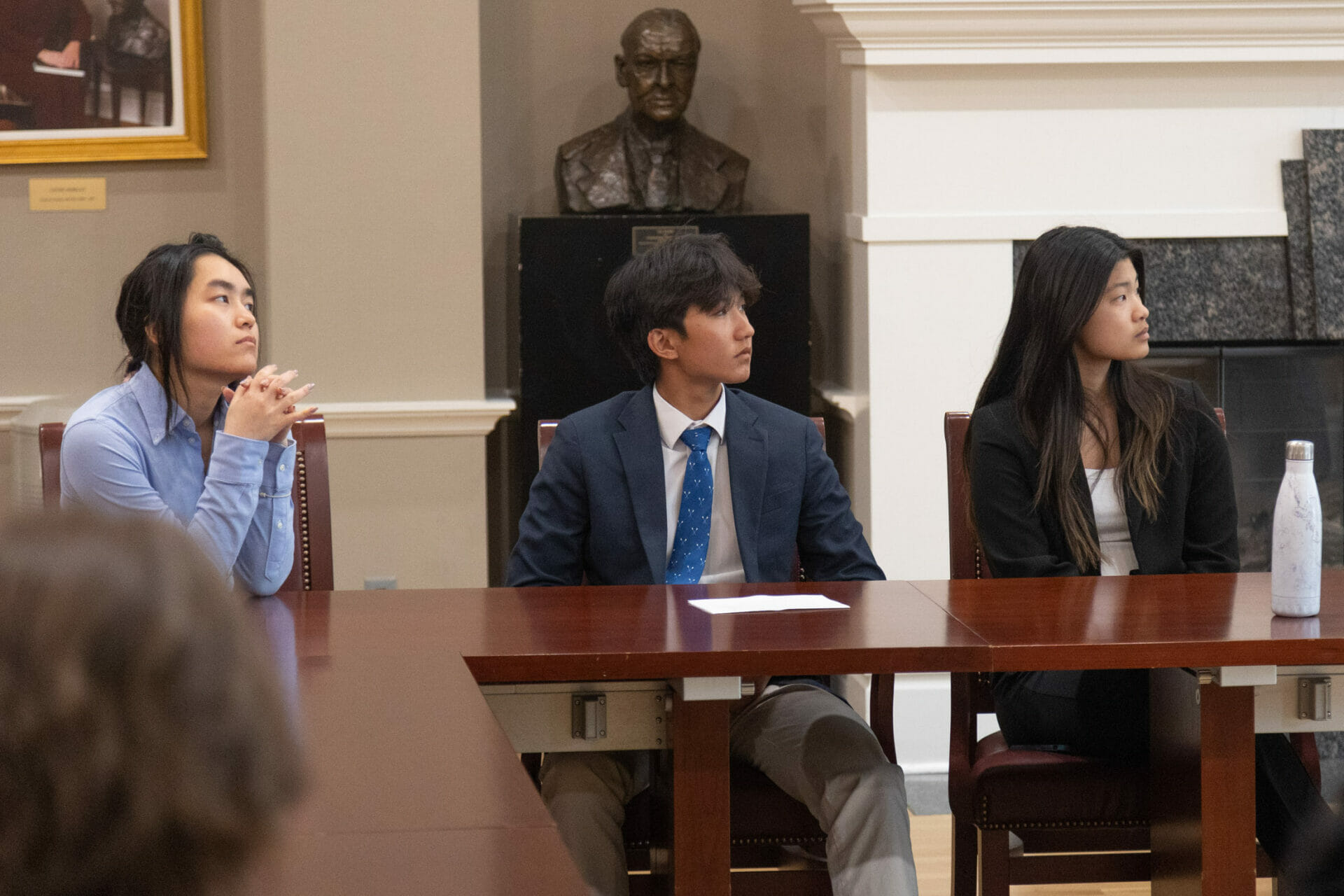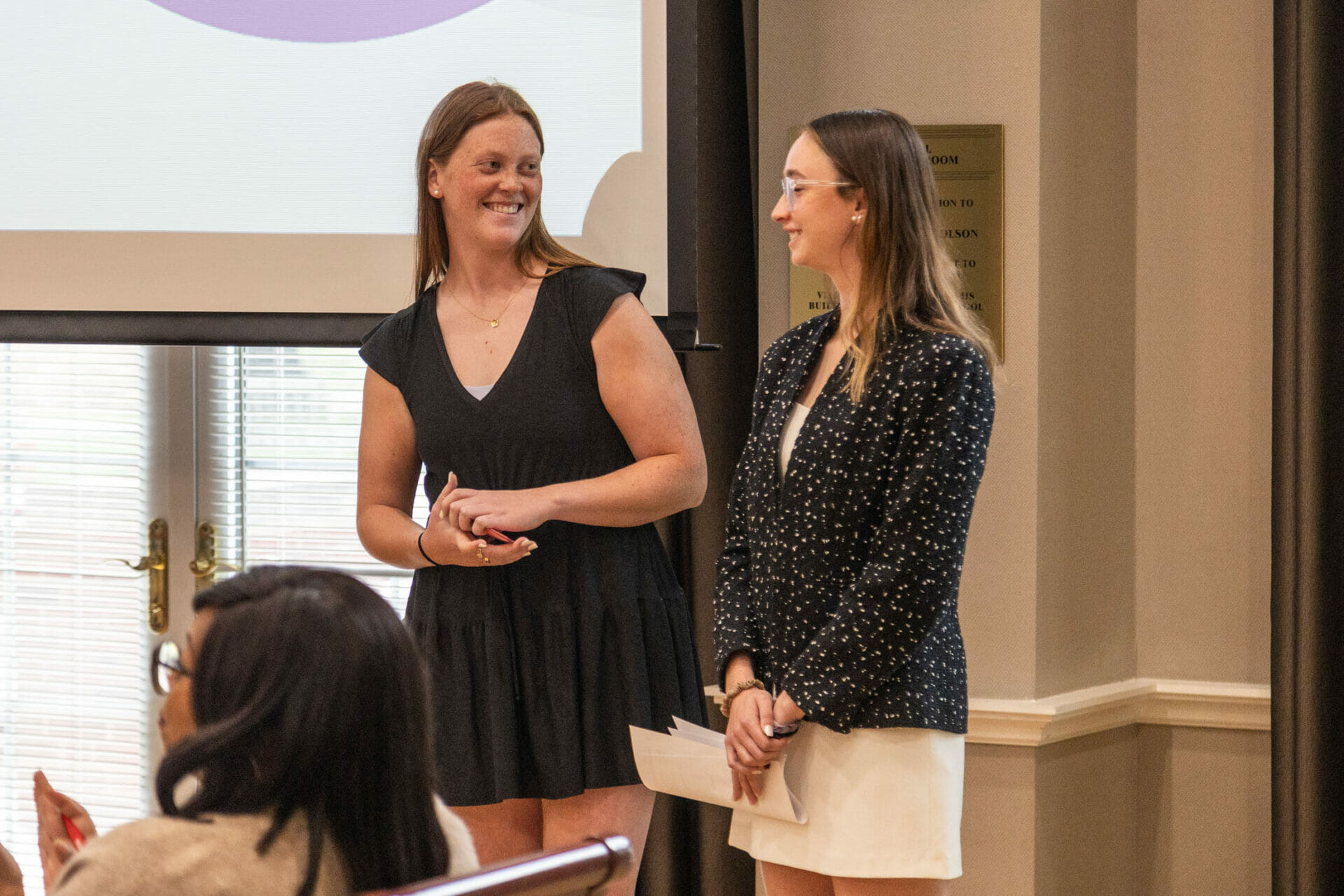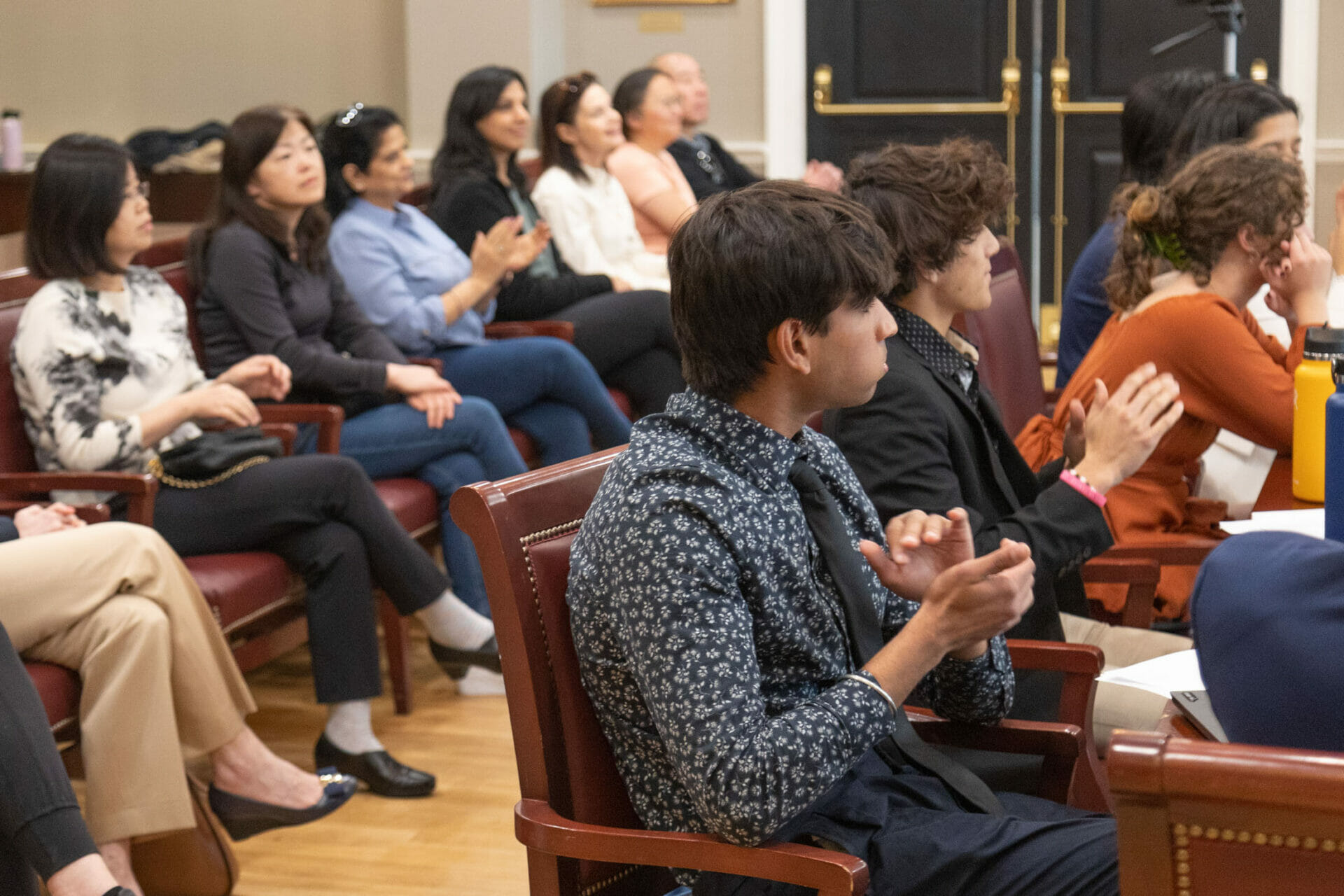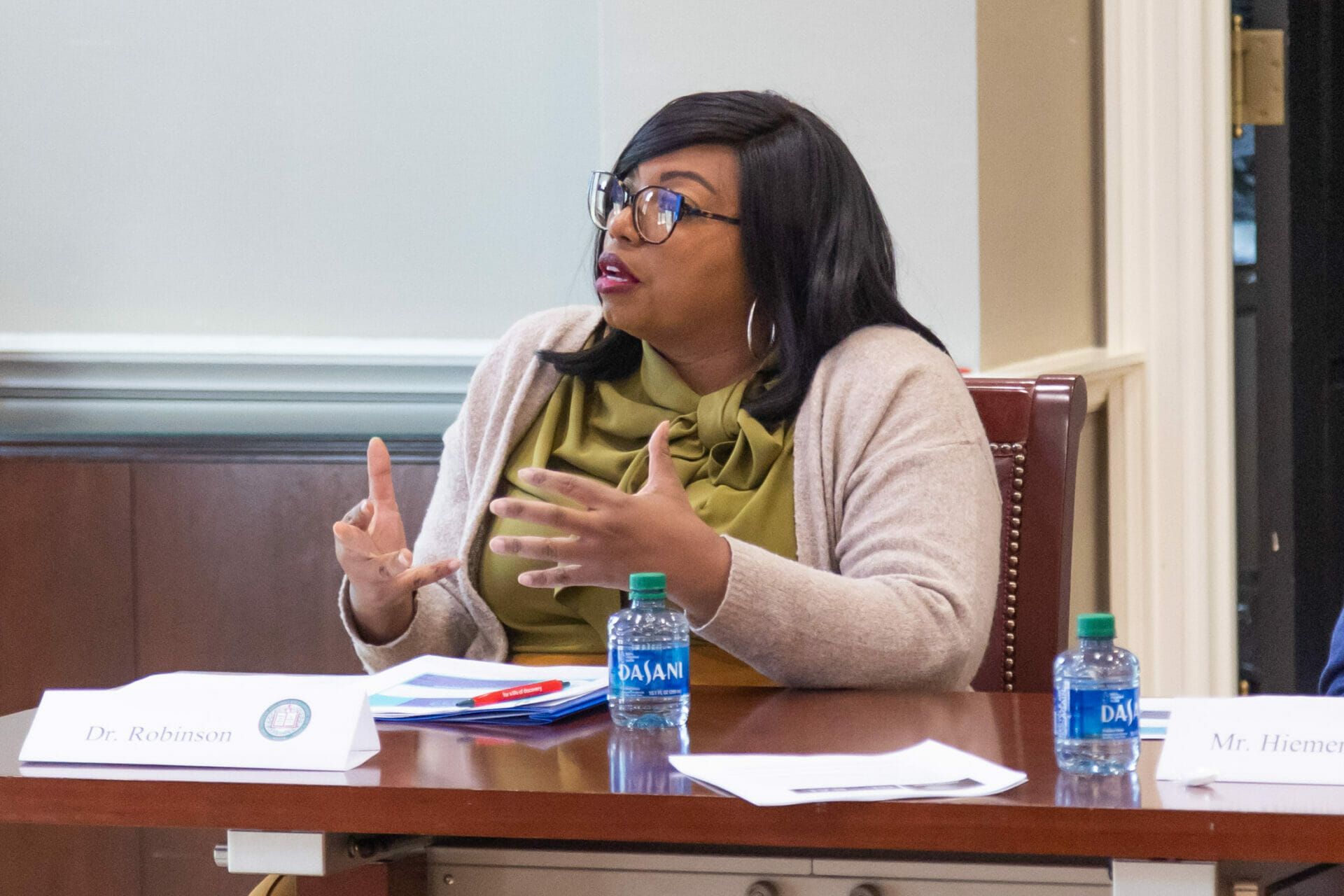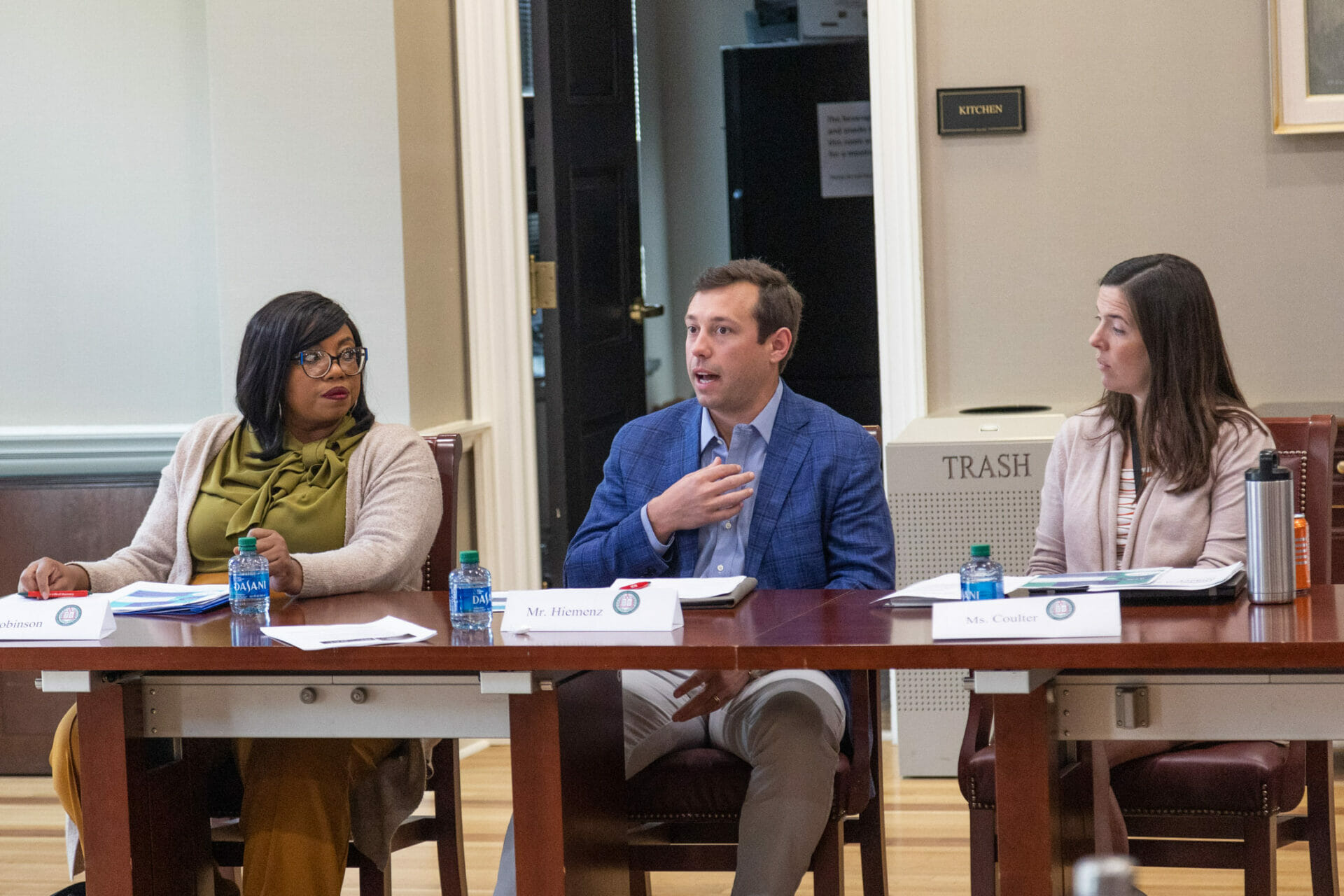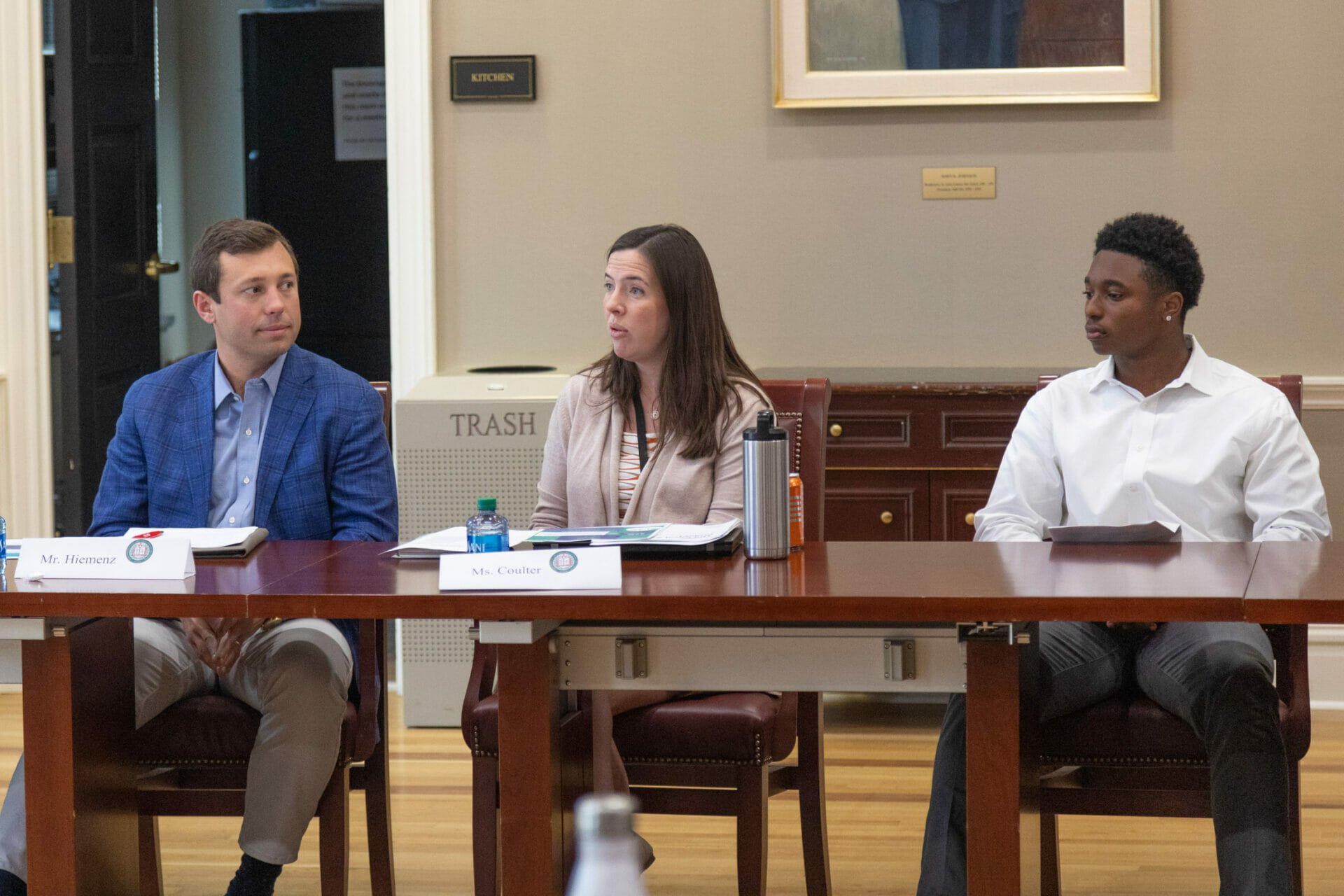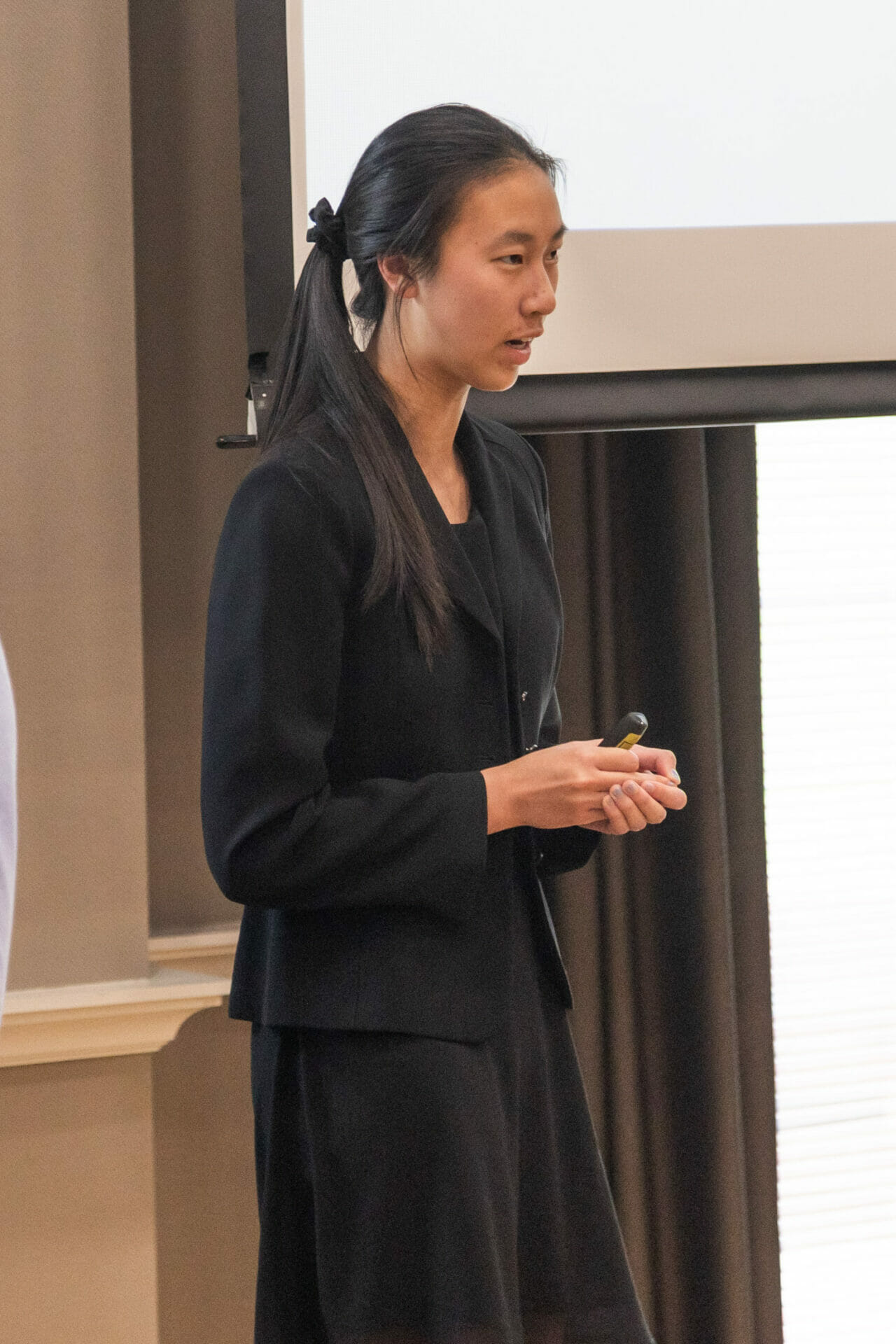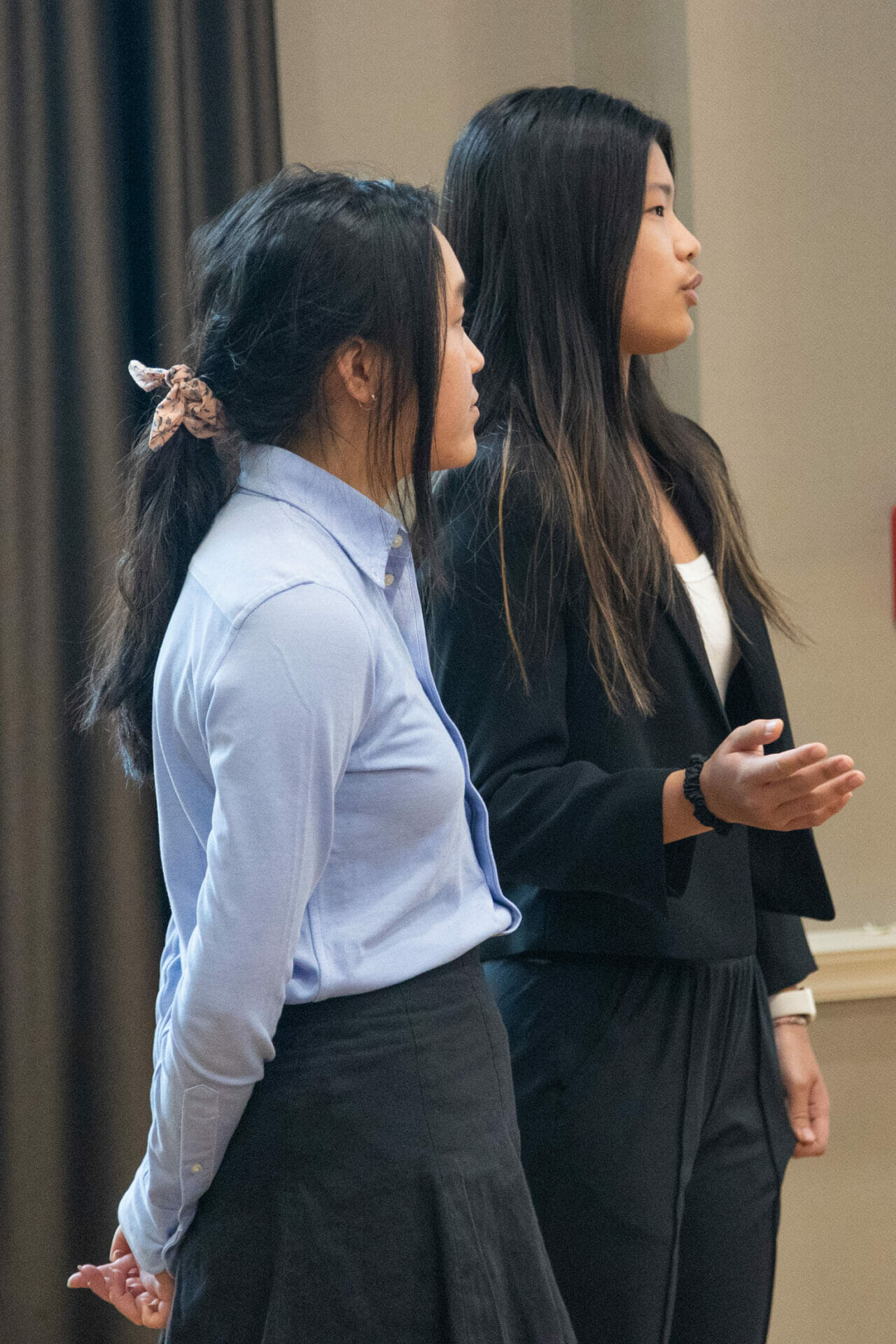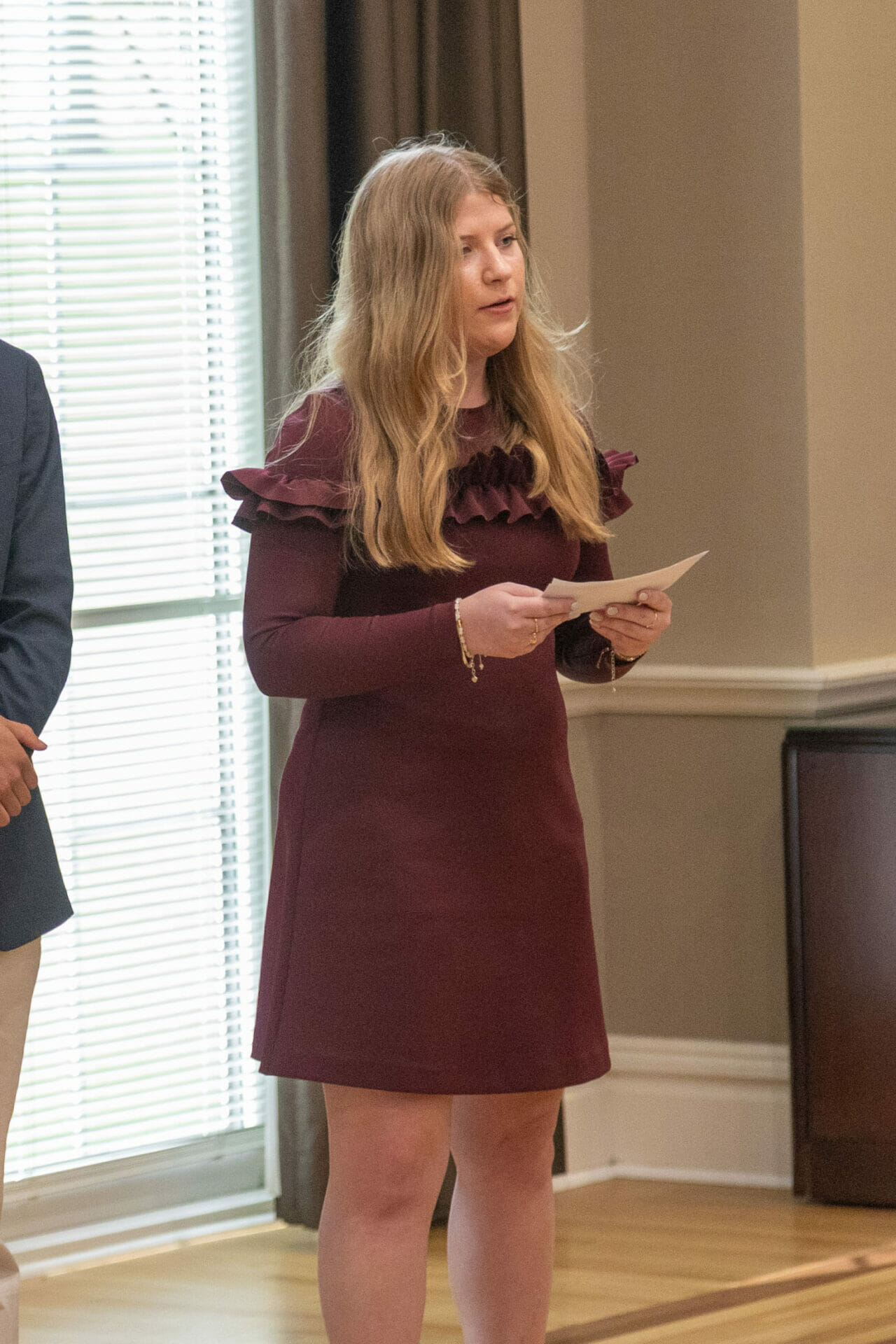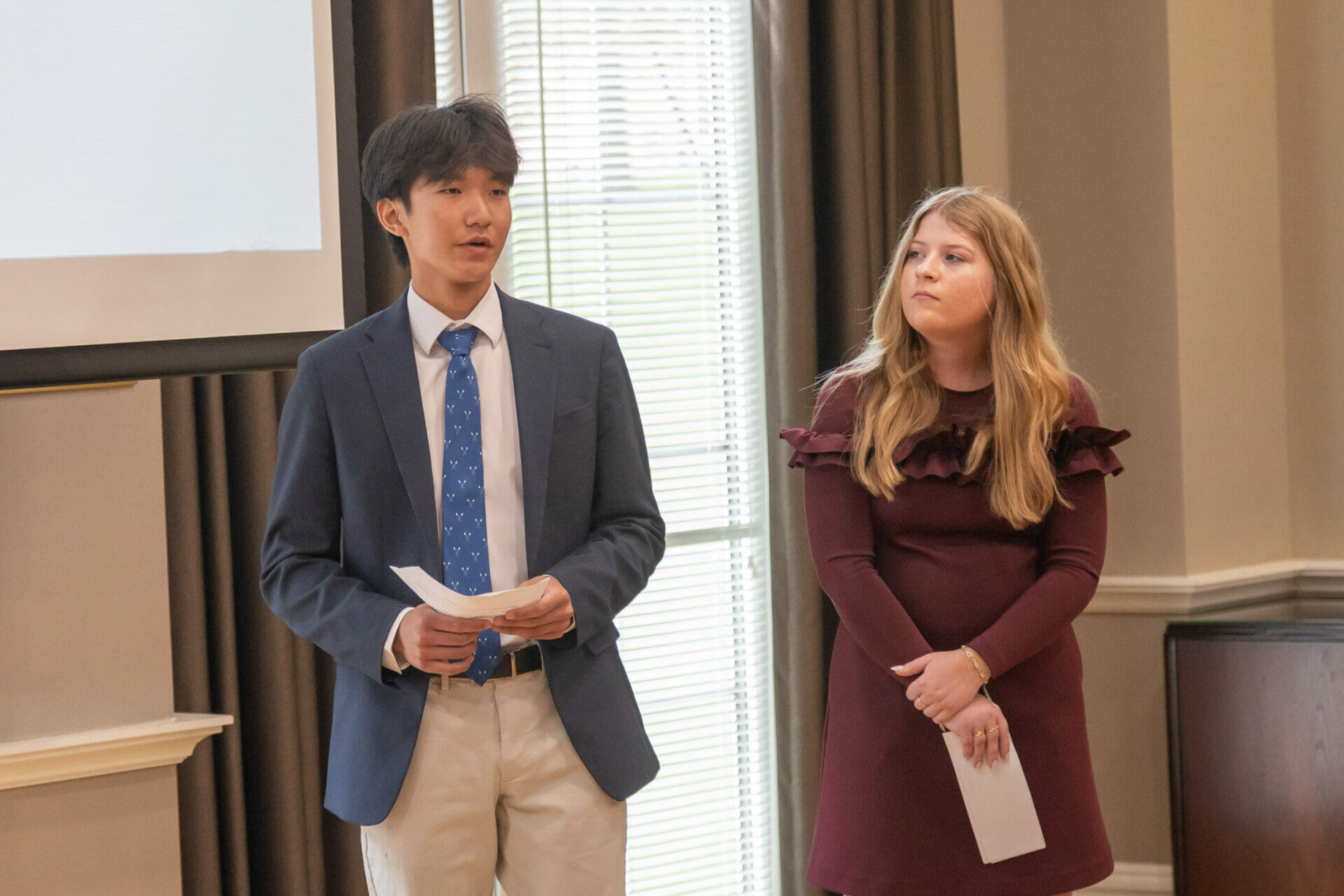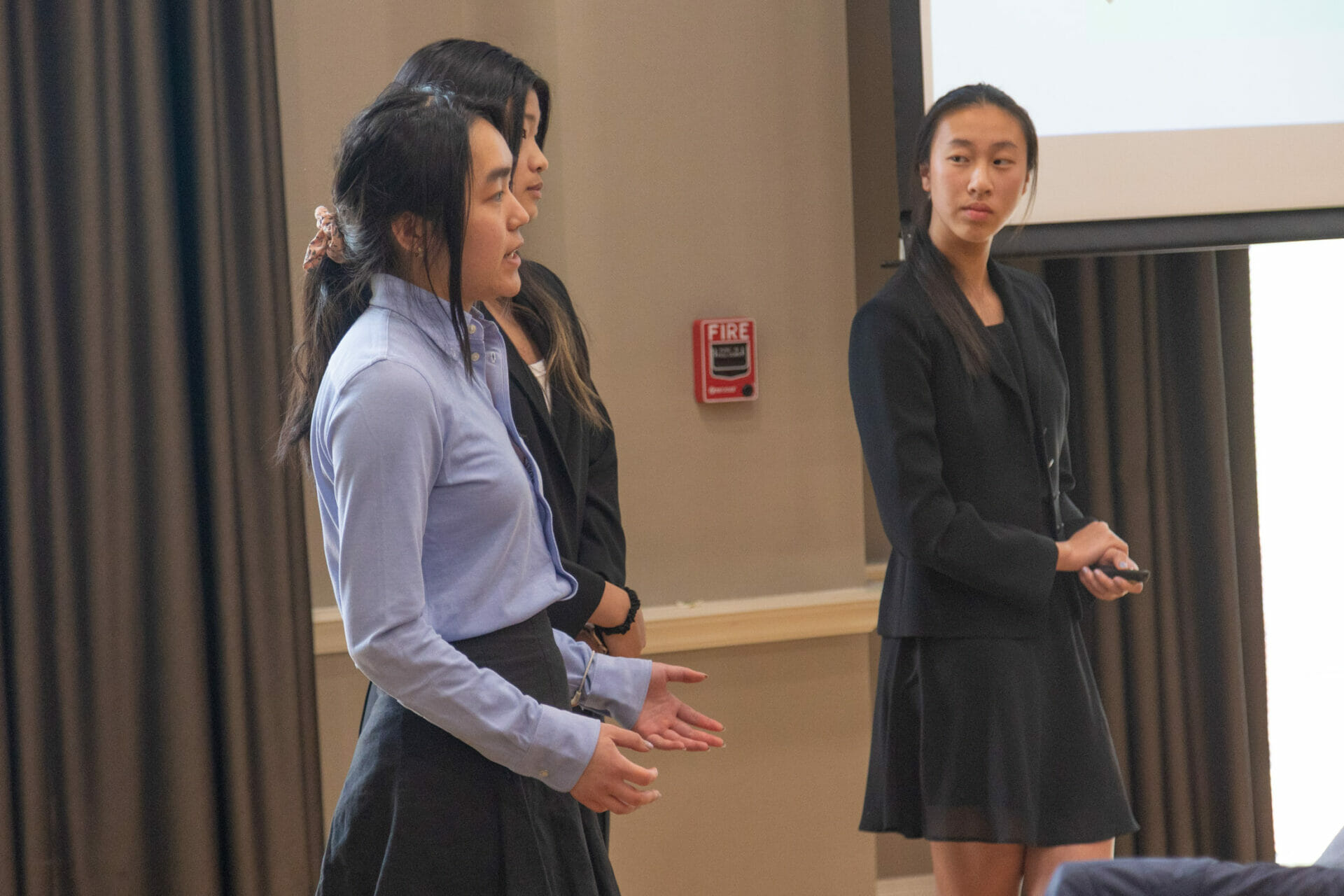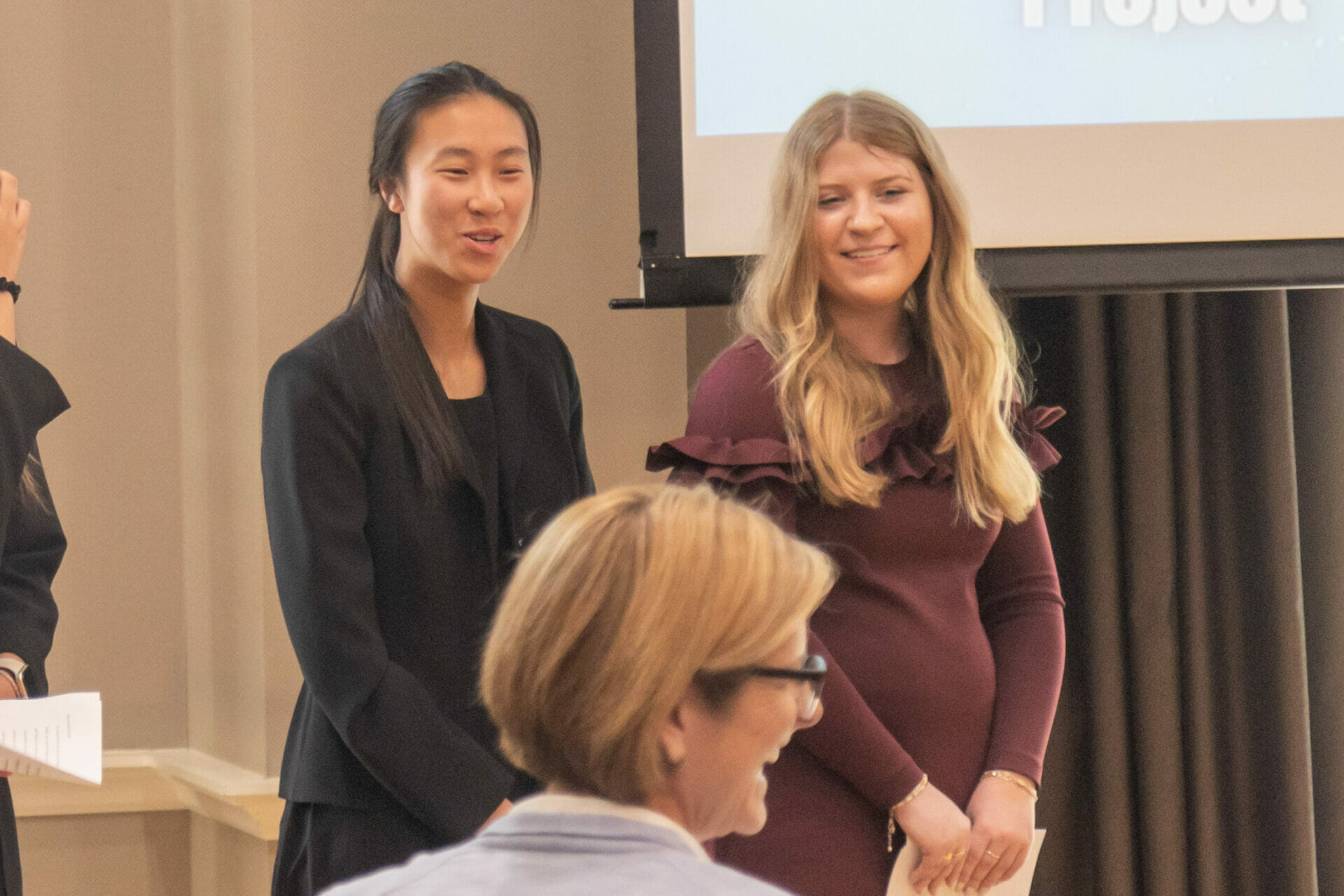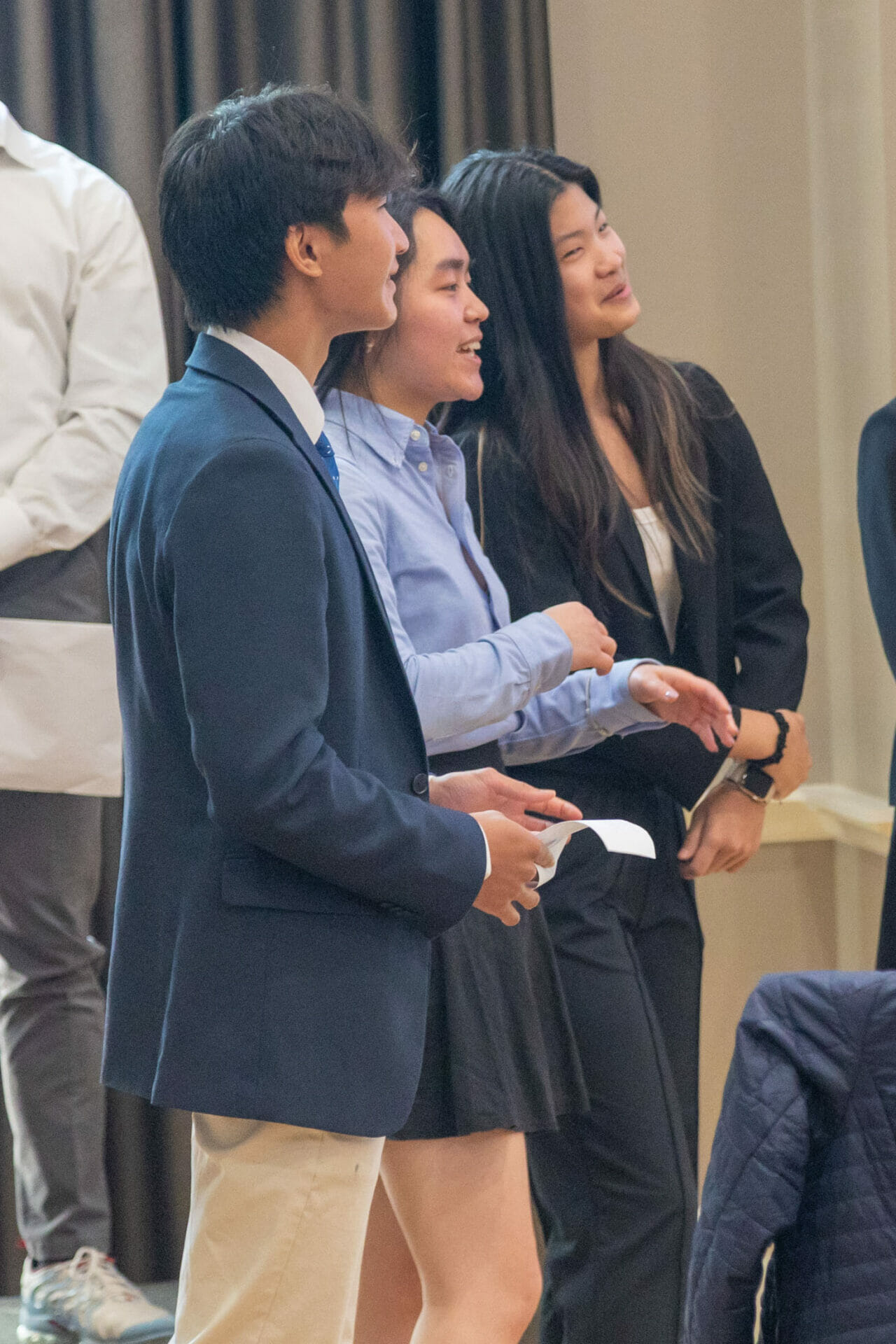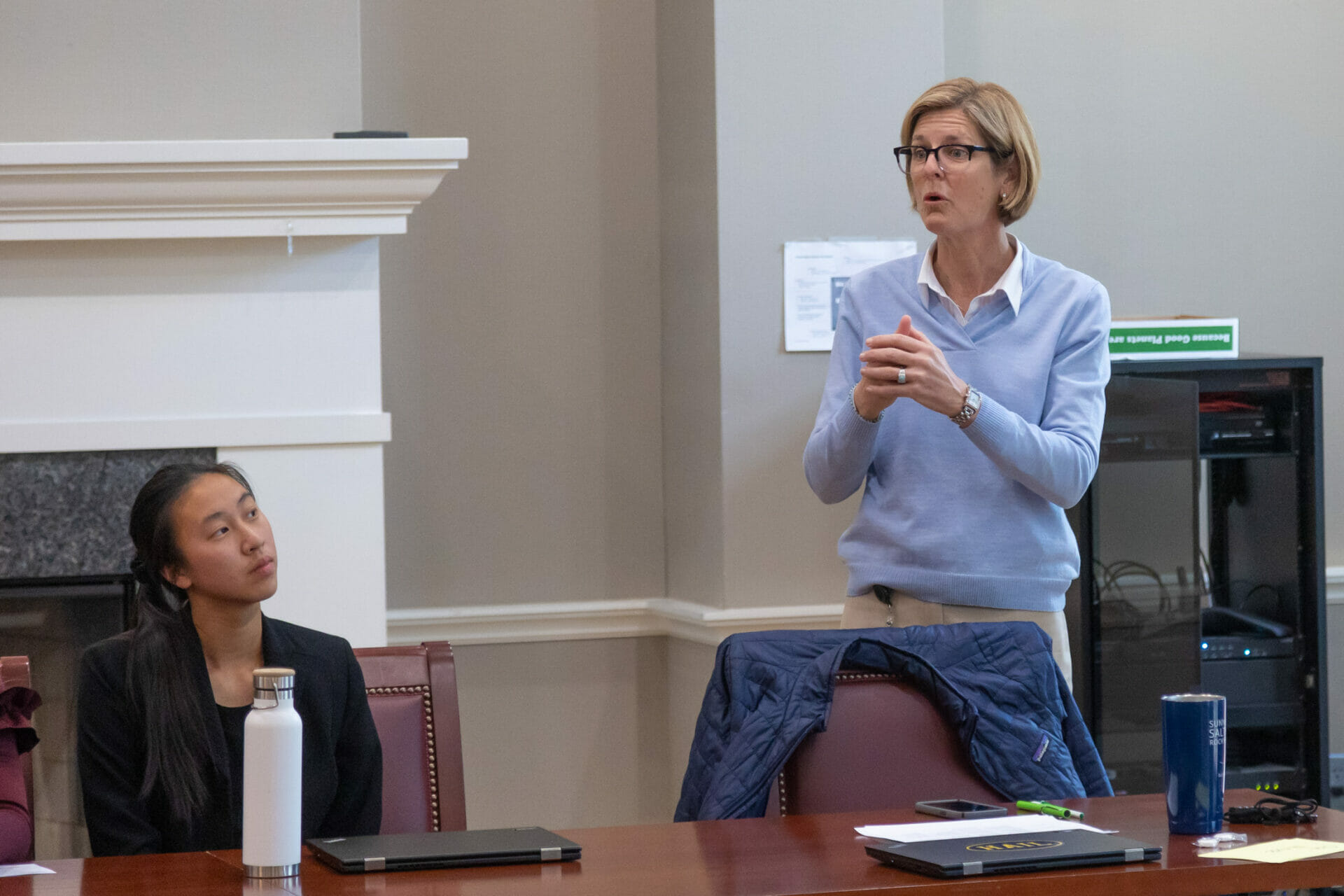Imagine a significant problem faced in the world that you’d like to help fix as an MICDS senior. Now, picture coming up with an equitable, fair solution to solve that global issue. The solution must take the form of a sustainable social enterprise presented to impact investors in the hopes of receiving substantial support.
This is exactly the challenge set forth to the seniors taking JK-12 English Department Chair & Upper School English Teacher Lynn Mittler’s Global Literature and Nonfiction class. Mittler described the prompt: “Students were asked to identify a system with an unjust equilibrium and then create an innovation that will address the problem in a unique way.” In groups, students spent the year creating an enterprise utilizing the Design Thinking process. This process follows a non-linear, iterative methodology where students empathize with those in need due to the unjust equilibrium, define the needs brought about by this issue and state the problems, create ideas, prototype to start fashioning solutions, and test their solutions. During these steps, they also write a business plan following the Business Model Canvas and create a documentary explaining the issue they are addressing. Ultimately, they present their materials to a panel of MICDS alumni who serve as “impact investors,” asking the students questions and pondering theoretically whether to fully or partially fund the presented social enterprise or not. These culminating presentations took place at the 11th Global Action Project Symposium on Monday and Tuesday this week.
The MICDS seniors were delighted to present to the following alumni/impact investors:
-
Mr. Chris Forbringer ’08 is a graduate of DePauw University and Washington University’s Olin Business School. He is the Strategy and Consulting Manager at Accenture.
-
Mr. Chris Hiemenz ’12 is a graduate of TCU’s Neeley School of Business. He was previously a commercial banker and is now the CEO of Compass Electrical Solutions.
-
Dr. Marva Robinson ’98 P ’29 is a graduate of St. Louis University and Nova Southeastern University. She is a primary care psychologist working with the St. Louis Veterans Administration as well as an Adjunct Professor at Webster University.
-
Elizabeth Moore Coulter ’08 is a graduate of Miami University. She is the Director of Development at MICDS.
Dr. Robinson was impressed by the seniors and their projects. “I really enjoyed my time on the panel and thank Lynn Mittler for inviting me,” she expressed. “The projects presented by the seniors were all amazing and a true reflection of the shift the school has made in how curriculum has come to life! Beyond just textbooks. I was impressed to know this generation took the time to create meaningful projects which could have sustainable impacts for others. For example, the Global Action Project on assimilation tackled the issue of the mismatch that can occur between host families and immigrants. The solution was such a cutting-edge concept that could statistically increase the rate of immigrant families moving through the process by considering cultural needs. All the projects had a unique angle that demonstrated their creativity, brilliance, and benefits from their community service work which MICDS focuses on. Each project clearly showed the students chose to also lean into technology to give us a real Shark Tank-like experience with documentaries, seamless slide transitions, and even tangible products. Well done to the entire Global Action Project class! I wish something like this was available when I attended MICDS, and I look forward to one day watching my son Preston ’29 present his own Global Action Project.”
Panelist Chris Hiemenz was also blown away by the presentations. “I was truly impressed with the students’ research, preparedness, and presentation skills,” he stated. “I felt like I was in a college business class during the presentations.”
Presentations were limited to 12-14 minutes with a few minutes available at the conclusion of each presentation for questions from the panel. Like the Acumen Fund, Echoing Green, and Technoserve, which offer seed money and larger series A investments to those fighting global issues or building enterprises for the greater good, the investors had to determine if they would ask the group to continue research and development in order to further “de-risk” their enterprise, give limited initial support so the group could start their work, or give full support.
The Class of 2023 covered a variety of important world issues and dreamt up some very thorough, creative solutions. Some social enterprises addressed the issues of food waste, dying coral reefs, and the low employment rate and poor healthcare access for people with disabilities, while others addressed the declining bee population, assimilation challenges of immigrants and refugees, and overburdening student loan debt. To see some of the solutions proposed, check out the one-page overviews of the social enterprises here.
Earlier in the year, students had the opportunity Zoom with documentarian Christine Beebe as they prepared to create their own documentaries about the issues they were addressing in their social enterprises. Beebe was able to share her experiences most recently at Lucas Films and coach the students on the research and interview process of making a documentary. She took questions from the students and was able to offer feedback on some of their film topics.
Before finishing classes this week, several seniors took the time to share more about the Global Action Project experience.
“My group addressed the issue of coral destruction, and our solution was to create a label placed on products that have been ethically sourced without harming coral reefs,” said Emma Shao ’23. “Our label would be similar to some other food labels you might find on items, such as non-GMO, organic, gluten-free, etc. Our organization would partner with companies in coastal areas and perform an inspection to make sure there is no runoff that could harm reefs. With our label, we would be addressing a large population of consumers, allowing companies to rise above their competitors and raise awareness about coral destruction.”
Shao also reflected on the process of putting her team’s Global Action Project together. “I really enjoyed working with my friends on this project and getting to talk to our interviewees. We gained insight into what steps are being taken to save the reefs right from St. Louis. Overall, I felt that we applied everything we learned throughout the school year, and being able to present in front of an alumni panel was a unique experience. Initially, GAP was nothing as I expected because we were learning about documentary skills as well as business models, but this project tied it all together. GAP has been a very different experience than other English courses I’ve taken; however, I have enjoyed it just as much.”
Senior Nate Ly ’23 talked about some of the skills applied to his project. “We’ve been working on building skills to complete this project over the past year, including close reading, lateral reading, identifying biases and constraints, learning the business model canvas, and techniques in creating documentaries,” he explained “Through the course, I especially enjoyed studying various current issues, which was a refreshing change from previous years.”
Another student talked about how intricate the project was and how much she enjoyed the documentary filmmaking component. “The most surprising thing I learned was how much work goes into simply creating a solution,” Nicole Dai ’23 said. “Besides the creative idea itself, you have to create a whole business plan addressing how your product is useful, how to have a sustainable revenue stream, and how to have a structurally sound marketing strategy. This final project was definitely a test of all the skills we learned throughout the year; we were able to leverage logos, pathos, and ethos through the form of a documentary and our presentation in front of the panelists. Overall, I think my favorite part of the project was creating the documentary. It’s really cool creating this short film that teaches people something that they thought they already knew.”
Congratulations to the GAP cohort on their presentations this week, and thank you again to our panelists for helping our students change the world!
